Photo: Jamie Crawford Walker
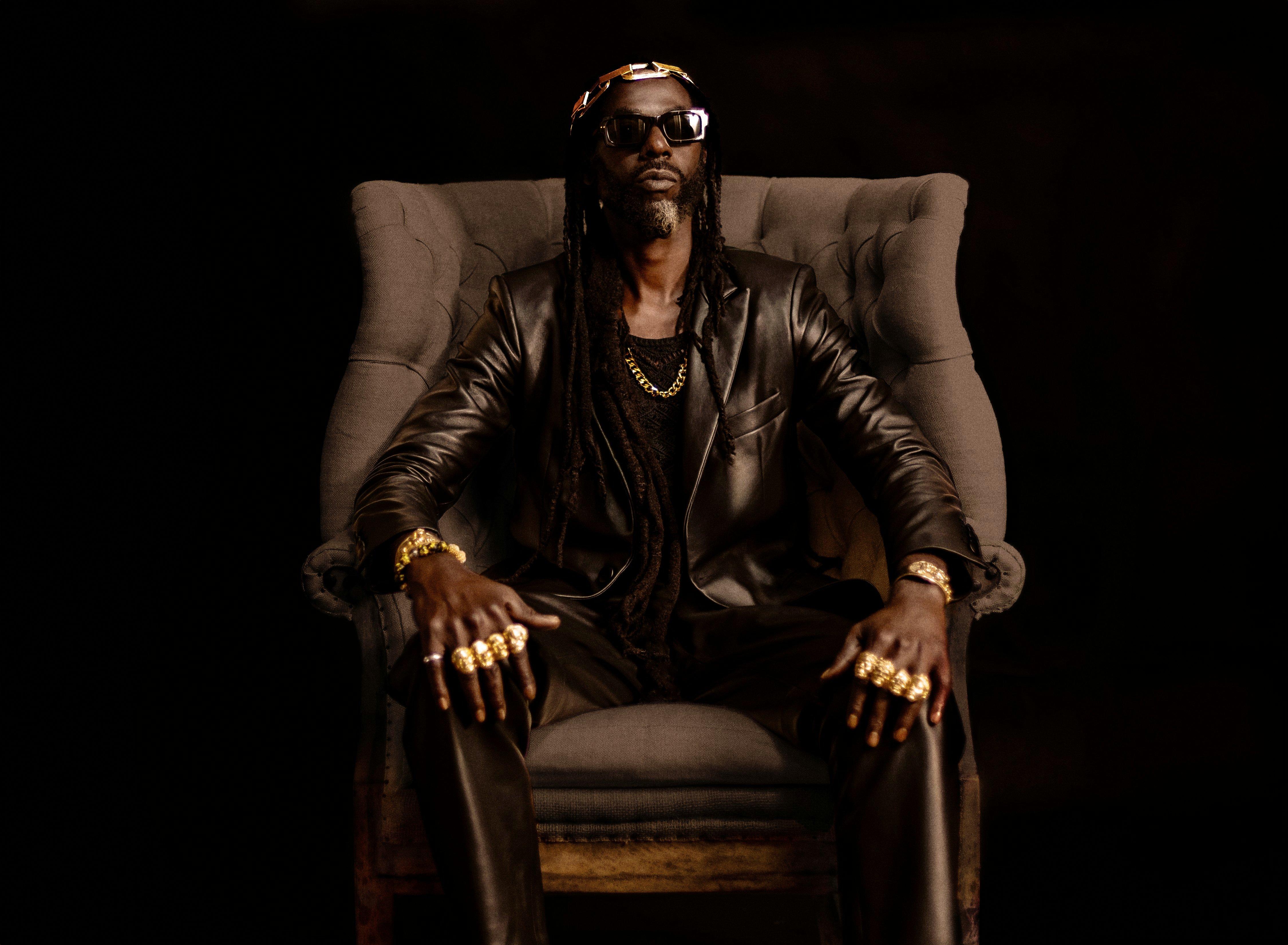
interview
Buju Banton's Untold Stories: The Dancehall Legend Shares Tales Behind 10 Of His Biggest Songs
'Born For Greatness' is the latest entry in Buju Banton’s 30-plus year career. In a wide-ranging interview, Banton reflects on 10 important songs in his ongoing musical odyssey.
When Buju Banton emerged on Jamaica’s dancehall scene in the early 1990s, his ferocious vocals were seemingly incongruous to his youth and slim build, which set him apart from his colleagues. So too did his flurry of early hits: "Bogle," "Batty Rider," "Big It Up," and "Champion." But the precocious teenage sensation also offered serious commentary on such hits as "How Massa God World A Run" and "Deportee."
Thirty years later, Banton continues to defy expectations. His latest album, Born For Greatness, melds reggae and dancehall with elements of R&B, jazz flourishes, crunching rock guitars, even a spirited gospel-tinged closer. "I don’t want anyone to put I in a bubble and say I should only make music like this or like that," Banton tells GRAMMY.com. "Let me be free to create and express the way I feel because I am sure there is someone out there who feels the same way."
Banton has been expressing himself since he was young. Born Mark Myrie, the youngest of 15 children born to a street vendor mother in a poor area of West Kingston, Banton is a descendant of the Maroons, Africans who defeated Jamaica’s British colonizers then retreated to the island’s mountainous interior, where they established communities of free Black people. Buju is a Maroon word for breadfruit and banton refers to a revered storyteller, a name Mark adopted in tribute to the deejay Burro Banton, whom he admired as a child.
Banton began toasting at just 12 years old and, by the early ‘90s, was so popular that the Prime Minister PJ Patterson was among his fans. Patterson missed Banton’s performance at Jamaica’s Reggae Sunsplash 1993 but still desired to see him live. Buju’s close friend/mentor and lovers rock king Beres Hammond granted the Prime Minister’s wish, giving a portion of his set to Buju, then joining him to deliver their hit duet "Who Say." When asked about the Jamaican leader’s request at the time, Buju paused and simply said, "the next prime minister shall know me, too."
Buju released his first album for a major US label, Voice of Jamaica, in August 1993. He followed with 1995’s ‘Til Shiloh, one of reggae/dancehall’s most celebrated and influential releases. Throughout his career, Buju has vacillated between the frenetic dancehall of his youth and the roots reggae associated with the Rastafari way of life that he later adopted.
Buju’s career abruptly stopped on Dec. 10, 2009 when he was arrested at his South Florida home for conspiracy to possess cocaine with intent to distribute. He was briefly released on bail that January and allowed to headline his fundraising concert for his mounting legal costs, which also featured Shaggy, Sean Paul, and Stephen and Damian Marley. A few weeks later, Buju’s Before The Dawn won the GRAMMY Award for Best Reggae Album — though the artist couldn’t attend the ceremony because his trial reconvened the following day. He was found guilty and sentenced to 10 years in a Florida prison.
In December 2018 Buju emerged a free man and returned to Jamaica. Four months later, he headlined his Long Walk to Freedom concert at Kingston’s National Stadium where he drew over 32,000 fans. His first release post-confinement, Upside Down 2020, was also nominated for a GRAMMY Award.
Banton produced the majority of Born For Greatness alongside Jermaine Reid, Stephen Marley and DJ Khaled. On the album’s cover Buju is clad in black leather and adorned with gold jewelry including chunky rings and a thick-linked gold chain wrapped around his head, a provocative image intended to evoke a discussion around mental enslavement.
"The rings are the faces of Frederick Douglas, Harriet Tubman, and the freedom fighters who fought to free us from the chains around our mind because they were adamant in their resolve of freeing the people," Buju explains.
With Born For Greatness the latest entry in Buju’s 30 plus year career, he recently spoke with GRAMMY.com reflecting on 10 songs that span his ongoing musical odyssey.
"Love Mi Browning,"Mr Mention (1991)
Over a bubbling organ riff, Buju declares his love for a Black woman with a light complexion (referred to as a browning in Jamaican parlance). Some listeners perceived the song as Buju expressing a preference for lighter skinned women; the ensuing controversy propelled "Love Mi Browning" to No. 1 in Jamaica and increased the popularity of the captivating, coarse-voiced deejay who recorded it.
"I went to (Kingston’s) Penthouse Records where I met up with (brothers) producers Tony and Dave Kelly, Stumpy the engineer and (singer) Wayne Wonder. We started making music and Dave Kelly wrote "Love Mi Browning" about his then-girlfriend. We started working the song and it just became natural," Banton says.
"We received a lot of backlash, saying we were favoring women of lighter complexion, so I went back in the studio of my own volition and recorded ‘Love Black Woman,’ ("Wi nuh stop cry fi all Black woman/big up all de girls dem wid dark complexion"), which brought balance and silenced the negative energy that was on the surface."
"Deportees (Things Change)," Voice of Jamaica (1993)
Between 1990 and 2005, Jamaica received (proportionately) the largest number of Caribbean nationals deported from the U.S. Canada and the UK. Buju’s huge dancehall hit "Deportees," addresses individuals who had established good lives overseas — perhaps fueled by drug money or other illegal means — with little regard for the well-being of the family members they’d left back home.
His lyrics detail the dramatic changes that occur when these individuals are arrested and convicted: their luxurious lifestyles implode, and they are deported to the land of their birth. "Things change, now unu (you) see say life hard, you never used to send no money come ah yard/You wretch you, you spend the whole ah it abroad, squander your money now you're living like dog."
"I wrote the lyrics and (producer) Dave Kelly made the beat," Buju recalls. "Nowadays, everyone is just frolicking, singing about abstracts; back then, we had to sing about real issues. That was one of the songs that empowered many people, not just in the Caribbean region but throughout the world, to remember where they are coming from, strengthen the Diaspora and make sure they have something at home to fall back on because if you can’t grow where you are transplanted, you have to grow where you are planted."
"Murderer," 'Til Shiloh (1995)
At the height of Buju’s frenetic dancehall success, he dropped a forceful commentary, recorded on the classic 1980s Far East reggae riddim, which had great resonance in the dancehall but also appealed to fans that preferred the more cultural side of Jamaican music. "Murderer", initially released as a single in 1993, decried the island’s escalating violence that claimed the life of one of Buju’s close friends (Anthony "Panhead" Johnson).
"The song was written at a time when the murder rate exploded in Jamaica, everyone had an enemy, and one of our beloved entertainers got caught up in that drama," Buju proffers. "I was on tour in Japan when I got the news that Panhead was killed; I sat in the passageway of the hotel with Frankie Sly and Wayne Wonder and started writing ‘Murderer, blood is on your shoulder/kill I today you cannot kill I tomorrow.’ Jamaica gravitated towards the song’s realness; the sentiment that was expressed was one that we shared because ‘you can hide from man but not your conscience.’"
Thirty years after he wrote and recorded "Murderer" bloodshed in Jamaica, and throughout the world, remains out of control. "If you understand the political system that is in place, all these things are designed," Buju adds. "I try to guide the world with positivity, despite all the negativity in which my name has been typecast."
"Untold Stories," ‘Til Shiloh (1995)
Throughout ‘Til Shiloh — which means until kingdom come — Buju masterfully blends his boisterous dancehall foundation with Rastafarian roots reggae, Nyabinghi drumming and African choral chants, among other influences.
The album’s most surprising track, "Untold Stories," is a stunning, semi-acoustic ballad, with Buju’s visceral, supple sung vocals recounting the struggles of the poor in Jamaica, and all over the world: "I’m living while I’m living to the Father I will pray/only He knows how we get through everyday/will all the hike in the price arm and leg we have to pay while our leaders play." He goes on to instruct the youth to learn from his experiences, "when mama spend her last and send you to class, never you ever play, it’s a competitive world for low budget people, spending a dime while earning a nickel."
Buju was just 22 when he wrote and recorded "Untold Stories," the song’s heartfelt insights and his emotive delivery undoubtedly born of the hardships he and his family endured. "That song was the beginning of a transition in my life where I was exploring my creativity and where the Father wanted me to go in terms of the messages I must carry to the masses," Buju explains. "It was just perfect, a heaven-sent song, I have to say."
"Give I Strength" feat. Ras Shiloh, Inna Heights (1997)
As the title suggests, the superb "Give I Strength" is an invocation for the resilience to get through life’s obstacles, to "live out the greater part of my days." Ras Shiloh’s quivering, soulful tone is an ideal complement to Buju’s granular timbre as they trade verses over an exquisitely crafted reggae rhythm.
"Ras Shiloh was a young emerging talent, American born from Jamaican parents, and I fell in love with his dynamic voice the first time I heard it," Buju shares. "He’s a youth that love Rastafari. [Producer] Donovan Germain invited him to his Penthouse studios one day and he just came up with the perfect renditions to complement what I was saying.
"'Give I Strength' is so relevant in this time, before time and after time, because we all need the strength to be better individuals, so it was natural, pure," Banton says.
"Small Axe" feat. King Stitt, Inna Heights (1997)
One of the earliest practitioners of the Jamaican art of deejaying (also known as toasting), the late Winston Sparkes, a.k.a. King Stitt, was pivotal in elevating the role of a sound system deejay into an attraction in his own right. One of the first deejays to have a hit record (1969’s "Fire Corner,") Stitt rarely recorded after the 1970s, but his inimitable toasting graces the rollicking ska track "Small Axe," featured on Buju’s 1998 GRAMMY-nominated album Inna Heights.
Buju’s first European tour in 1991 circuitously led him to record with Stitt. "I spent six weeks in Europe, I went to Germany, Austria and I knew nothing of making reggae music, I was making dancehall music," Buju reveals. "I came home with the intent to make reggae music. I booked time at Tuff Gong Studios with a group of musicians and said we are going to make live music and they said, ‘are you serious?’ I said ‘yeah, I want to make ska, rocksteady and reggae music.’"
That session netted "Hills and Valleys," "What A Mighty Dread" and"Small Axe." Banton continues, "Making ska was more important than just the instrumental; it provided an opportunity to tap into the richness of our musical culture and to work with a great man like King Stitt. Maybe it was the divine instruction I had to follow as a servant and I did."
"Pull It Up" feat. Beres Hammond, Unchained Spirit (2000)
Despite the very different lanes they occupy in Jamaican music, there’s an undeniable vocal chemistry between Buju Banton and Beres Hammond that has yielded many great singles, including their timeless celebration of the dancehall "Pull It Up." Over an irresistibly danceable reggae rhythm, Beres’s smoky sung descriptions of the dance, "Everywhere I look is pure skankin’, I see no statue around," are punctuated by Buju’s irrepressible, raspy ponderings, "Without di dancehall, a wha we woulda do? When reggae music call, you must answer, too."
Buju detailed their initial encounter: "I first met Beres at a studio in 1992. I was the guy they sent out to buy Guinness, lunch, I was just coming up and I had to pay my dues. One day, I asked Beres, 'Why do you drink so much Guinness?' He said, 'After it passes the heart, that’s when I really start to sing,'" Buju laughingly recalled. "He had a reservoir of knowledge that he was hungry to pass on to a young man like me who was hungry for knowledge where the music is concerned.
"I didn’t get an opportunity to work with him until I proved that I understood the rudiments of music. Then he welcomed me and ever since, we have communicated musically. It’s always a mystical communication with him: he sings, and I am able to feel what he’s singing about and communicate it to the next generation in layman’s terms."
"Driver A," Too Bad (2006)
Set to the sinewy, bass heavy pulse of Sly and Robbie’s Taxi riddim, Buju instructs his driver to "Drop this Arizona [ganja] round Albermarle [a road in Flatbush, Brooklyn]" cautioning him to "remember the damn speed limit because if you run into the feds, that is it."
The clever, detailed lyrics weave an engaging, sometimes humorous narrative and Buju’s gritty delivery is so authentic that "Driver A" was immediately referenced when news broke of his arrest, three years later. Buju says the song was inspired by the hustling he saw going on in America.
"When I come to America and see how the people live, in their day-to-day life, they have to hustle, they have to go hard, everybody has something going on," he says. "Some people can relate, and some can’t relate but it’s a song in ode to those who hustle. It doesn’t get better than that."
"Buried Alive," Upside Down (2020)
Since his release from prison, Buju has said little (directly) in his interviews or through his music about his time in confinement. "Buried Alive" is a powerful depiction of the fortitude required to survive such an ordeal. It’s essentially a rock song with a sputtering tempo, featuring an overlay of searing guitars that accompany Buju’s anguished vocals: "Buried alive but I’m still breathing, I don’t know what tomorrow may bring but I got a feeling/I am alive, there must be a reason, I was given one more chance, my heart is still beating," sings Buju.
"They planted a seed, and I was allowed to grow. And grow I did," Buju said regarding the song’s subject matter. "My captors expected me to be bitter, but I said, 'Father forgive them because they know not what they did.' My mission still continues, I have not done anything different than what I was doing before, which was making music and loving people."
When asked if he wrote songs during his imprisonment, Buju says. "I did what I had to do to stay alive, it was that simple. Whether it was writing songs, teaching, being a source of light in a place of darkness, I was doing what I had to because the Lord ordained that I had to be there."
"Let My People Go," Born For Greatness (2023)
Buju concludes his latest album with a rousing gospel-influenced cry for personal liberation and the freedom of his people. The title is taken from a refrain that echoes throughout "Go Down Moses," a centuries-old African American spiritual, originally written about the exodus of the ancient Jewish people from slavery in Egypt. "Let My People Go" is shouted in a call and response fashion throughout Buju’s song, written about present day atrocities: "The whole world is in bondage (let my people go), tell these tyrants to let go (let my people go) what remains they may not be able to salvage (let my people go), they shall be riot, and rooting, and raving, and ravaged (let my people go)."
"The message is needed now more than ever," Buju states. "Freedom is being eradicated every day and people are being herded. The whole world is in bondage and the only hope is the truth, so we remove the veil from our eyes so we can see everything and everyone for who they are. The truth shall make you free. We are tired of this perpetual struggle, we are tired of this physical existence, just let my people go."
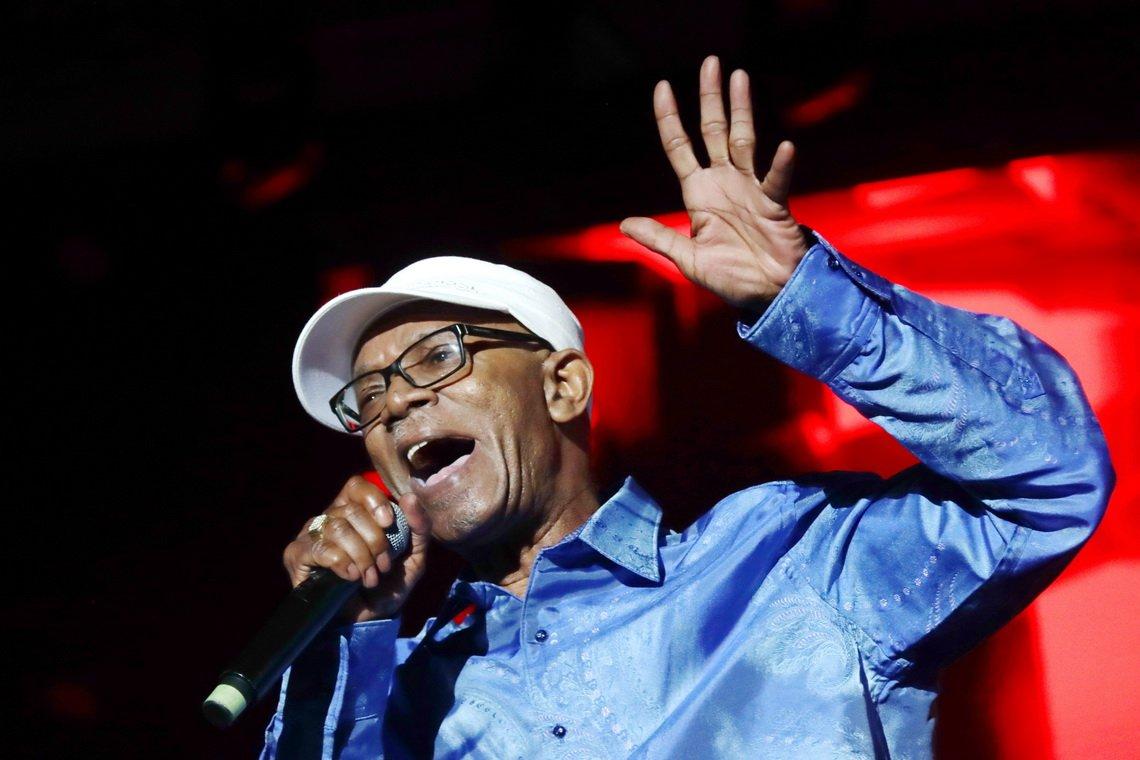
Photo: Steve James
interview
Living Legends: Beres Hammond On His Enduring Career, Timeless Music & 'Brand, Jamaica!'
Beres Hammond has had a lengthy career in reggae, both as a member of Zap Pow and as a solo artist. The two-time GRAMMY nominee discussed his enduring popularity and what he hopes younger artists can learn from his story.
Prior to performing his first song at Reggae Sumfest 2024, Jamaica’s largest music festival, legendary vocalist Beres Hammond shared a concise but important message. "Jamaica," he bellowed, seemingly as a greeting, which he followed by shouting "brand." "We are a brand! I am, you are. Brand! Say it," he instructed. "Brand, Jamaica!"
Throughout his July 20 Sumfest set, Beres interspersed the catchphrase "brand, Jamaica," as if reminding the audience of 15,000 (and the younger artists backstage) at Montego Bay’s Catherine Hall, of Jamaican music’s significant legacy and widespread impact. Countless musical gems comprise brand Jamaica, but few, if any, are more precious than the songs of Beres Hammond.
Born Hugh Beresford Hammond in the small fishing village of Annotto Bay, the two-time GRAMMY nominee first gained notoriety in the early 1970s fronting reggae/R&B fusion outfit Zap Pow. As a solo artist, Beres’ songs primarily explore the erratic complexities of romantic relationships; his charismatic, powerfully granular vocals have been likened to that of soul legends Otis Redding, Teddy Pendergrass and Sam Cooke.
"I never thought I’d reach this point," Hammond tells GRAMMY.com. "Even now, I still show respect to the folks that helped me to grow and are helping me to still be relevant."
At Sumfest, accompanied by his superb Harmony House band and three flawless female backup singers, Beres delved into his beloved catalog, as the audience, spanning three generations of fans, loudly sang along. After performing his first No. 1 single, the 1976 soul nugget "One Step Ahead," which held the top spot in Jamaica for over three months, Beres reminisced onstage, "People thought I was an American guy. It was my first taste of success, but I had no money, I couldn’t even ride the bus. I was broke!"
Beres released a spate of popular singles beginning in the late 1970s into the mid-1980s yet he continued to struggle financially. His situation improved with his initial release on his own Harmony House label, the 1985 hit "Groovy Little Thing."
A sequence of hits followed recorded for various Jamaican producers including 1987’s "What One Dance Can Do," which spawned several answer records (including Hammond's own "She Loves Me Now"). His 1990 defiant social critique, "Putting Up Resistance", produced by Tappa Zukie, remains one of the biggest reggae songs from that era.
Working with producer Donovan Germain’s Penthouse Records, in 1990 Beres laid his vocals over a riddim called "A Love I Can Feel" (after singer John Holt’s 1970 hit, itself a Temptations cover). The resultant "Tempted to Touch" topped reggae charts internationally and commenced a stream of Penthouse hits for Beres that also included "A Little More Time" and "Who Say," collaborations with a gruff-voiced teenaged sensation, Buju Banton.
As his fan base expanded throughout the Caribbean and reggae Diaspora, alongside increasing acclaim for his stellar songwriting and passionate, pliant vocals, it was inevitable Beres would attract major label interest. He signed to Elektra Records, for whom he released just one album, the outstanding In Control, in 1994, featuring the sublime, sultry R&B flavored single "No Disturb Sign."
Between 1996 and 2018 Beres released seven self-produced studio albums through his Harmony House label’s joint venture with Queens, NY based VP Records, including two GRAMMY nominated titles in the Best Reggae Album category. Beres received the nod for his 2001 album, Music is Life at the 44th GRAMMY Awards and again at the 56th GRAMMY Awards for his 2012 album One Love, One Life.
Beres has collaborated with dancehall superstars Sean Paul and Popcaan, and his work has been referenced by Jamaican artists including singer/songwriter Tanya Stephens and sing-jay Mavado. Although he hasn't had a U.S. mainstream hit, Hammond's music is nonetheless recognized by some of the industry’s biggest names. In 2012 Rihanna tweeted the lyrics to Beres’ "They Gonna Talk," obliquely addressing her then rekindled relationship with Chris Brown; at an event in Barbados, she was seen singing along to a medley of Beres hits. Drake conveyed his fondness for the iconic vocalist by retweeting a fan’s declaration that she’d like Beres Hammond to sing at her wedding. Wyclef Jean conclusively expressed the veneration due the bespectacled songster on the outro to his 2001 duet with Hammond "Dance 4 Me," bluntly stating, "All you fake singers, bow down to the legend."
Beres Hammond's most recent single "Let Me Help You" was released on May 3; VP Records says a new Beres project is possibly due by the end of 2024. In between rehearsals for a spate of performances in the New York tri-state area, Beres Hammond sat down with GRAMMY.com and discussed his enduring popularity, his messages to younger artists and the meaning of "brand, Jamaica."
Welcome back to New York City. I was at Reggae Sumfest and I saw your wonderful performance. There’s something extra special about your performances in Jamaica, seeing, hearing different generations of fans singing along to your songs.
What I like most is when the young folks, teens and 20s say, "My mom used to listen to you when she’s in the kitchen working, that’s how I know these songs." They still love them, still sing them. It makes me feel like I came out here to do a job and everything’s been accomplished.
Why do you think your music has such vast appeal among various age groups?
I think it’s the way I present my songs. I make it so easy for everyone to have access. I don’t use Wall Street words; I make it A-B-C. I just do my thing in the simplest manner so everybody can sing it!
You just performed two sold out shows at the Coney Island Amphitheater and the New Jersey Performing Arts Center part of your Forever Giving Thanks tour. So many decades after you started out, that must feel extremely gratifying.
Everyday feels like a new day on the job. I’m giving thanks that I’m in good health and I’ve still got some voice left. All the folks around me, like the band and crew, they’re treating me as if we just started. When you have people around you like that, it’s almost like the journey has just begun.
Have you been working with the same band members for all these years?
For a lifetime, almost. Some have been with me for over 30 years. For the newest members, it might be 10 years.
Throughout your Sumfest performance you intermittently shouted, "brand, Jamaica!" What does that mean?
I was talking about me, what a beautiful brand, but also Jamaica, itself, to the world. Helluva brand! I join the folks that still have Jamaica on the world map as a brand to be reckoned with. Because we nah go nowhere. We deh yah! [We’re here].
I’ve always thought of myself as a brand and upcoming artists should recognize the legacy that’s left here for them. I say "brand" again, to make them understand the role they’re supposed to be playing in what was handed down to them. Be proud of what you’ve got because you are standing on some broad shoulders; be careful how you step on those shoulders.
Coming up in the 1970s and early '80s, whose shoulders did you stand on?
What introduced me to wanting to sing was a few voices including Otis Redding, Sam Cooke, Stevie Wonder, he’s still amazing. I used to love Aretha Franklin and I still love Patti LaBelle. I listened to those voices and said, "Yeah, I would love to sing like them." Then checking on my Jamaican folk, Alton Ellis, Delroy Wilson, hearing those voices, I thought, there must be something out there for me.
Learn more: Remembering Coxsone Dodd: 10 Essential Productions From The Architect Of Jamaican Music
Are there any artists you are mentoring, artists that are standing on your shoulders?
Some of them come up to me and say Father B — they call me all kinda names, Father B, Dada, and they give me some nice accolades. I don’t seek them out, they find me and I always have the right things to say to them, if they ask. Kids still want to learn and being around me, you will learn many things.
Thirty years ago, in 1994, you released your album 'In Control' for Elektra Records. It's still one of my favorite albums.
At that time Elektra went into some merger. The beautiful Elektra crew working with me — some got fired, some went to other places; it was a mess, man. That had a great effect on what the album should have done and really turned me off from Elektra and major labels. This is how people with their big bag of money treat people, come in, push us around. But through the years, I’ve learned that [Elektra] took my music to places that I don’t think I would have reached, so it helped me along.
You continue to have a very successful career, but I can’t help but wonder, had 'In Control' received the push it should have, would your music be better known beyond a reggae audience?
I don’t know, but I know where I stand now and where we are still aiming to go. That never came out of our focus because, hey, the sky’s the limit.
Where are you aiming to go, what are some of the things that you’d still like to do?
I’d like to sing that song that makes the whole world sing along. I’m not sure if I’ve made that one yet.
I hope that my Jamaican brothers and sisters who are making music take it seriously and remember, you’re an influence. Ask yourself, what kind of influence do you want to be to the next generation? Do you want to be the one to make them have a better education? Do you want to be the one that makes them aspire to be leaders? Or do you want to be the one to send them to prison?
Is there any place that you haven’t yet performed but would like to?
People have asked me, what’s my favorite place to perform? I still don’t know. My favorite place is anywhere in the world; once you gather to see me, oh God, that’s my favorite place.
How has the music industry changed in the years that you’ve been in it?
You have to brace to face any new challenge in music. But all I’ve ever wished for is, no matter what kind of changes the music goes through, keep the thing positive so the people can learn. I can’t tell the younger generation what to do. I had my time and did what I had to do; you have to allow them to be themselves, too. Whatever changes the new generation wants to make, I’m there with them; just keep those values and you’re good.
On Jan. 1, 2023, you and Buju Banton put on a very successful concert in Jamaica called Intimate. Any chance you’ll bring that back?
They just talked to me yesterday about it. [Hammond imitates Buju’s resounding voice] "What ‘appen? What are we saying? Second leg? Father B, give I the green light." So, we are looking forward to bringing that back in January 2025.
Read more: Buju Banton's Untold Stories: The Dancehall Legend Shares Tales Behind 10 Of His Biggest Songs
You’ve recorded many songs with Buju and in 2023 you released another collaborative single "We Need Your Love"; an album was expected to follow. Are there any release plans for the Beres/Buju album?
We’ve already recorded 12-15 songs so when them ready, they will tell me. I did songs for Buju and he did songs for me.
Earlier, you mentioned turning on the radio to hear a song that everyone will sing along to; do you listen to Jamaica’s radio stations to hear the latest music?
I listen to talk shows to tap into what the country is doing. You have people calling in, talking about what the prime minister is doing, how many people died today. Music is around me through my kids, my friends. I’m up on everything; without actually listening to it, I’m hearing it.
You have six children; some are pursuing music careers. Tell me about them.
One of them, DJ Inferno, he’s always on the road with me; he plays before I perform, and he mashes up the place all the while. My son Rasheed is in production, trying to establish his own label, he’s ready to start releasing music. One of my daughters, Nastassja, they call her Wizard, she’s a writer, artist, producer. My other daughter, Andrene, is an actress (Andrene Ward-Hammond stars on the CW Network’s "61st Street") and she’s on tour with me looking after my personal needs.
Sometimes I am out here with all six of my children. It’s a beautiful thing. They make me proud.
More Reggae News
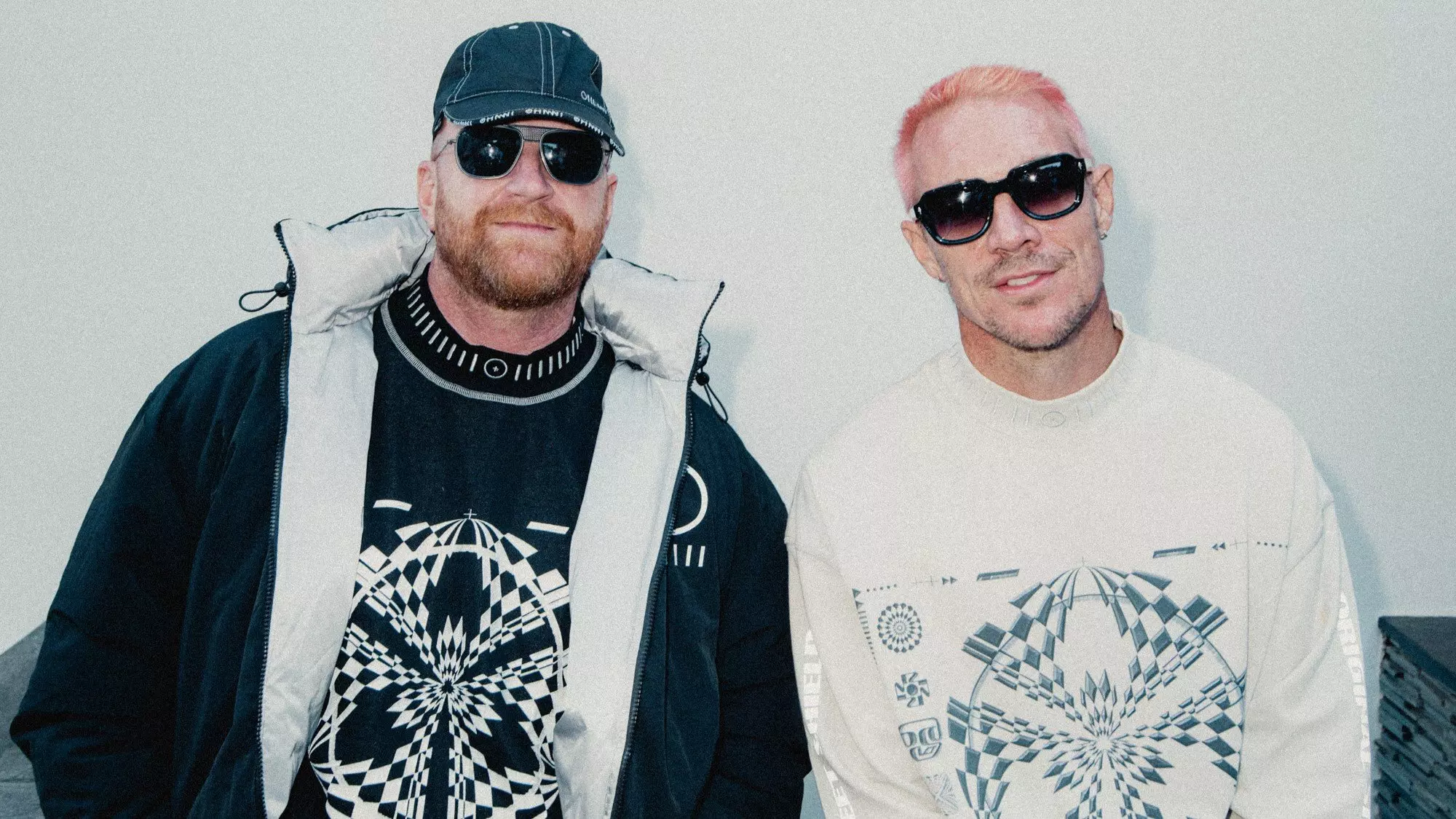
How Major Lazer's 'Guns Don't Kill People…Lazers Do' Brought Dancehall To The Global Dance Floor
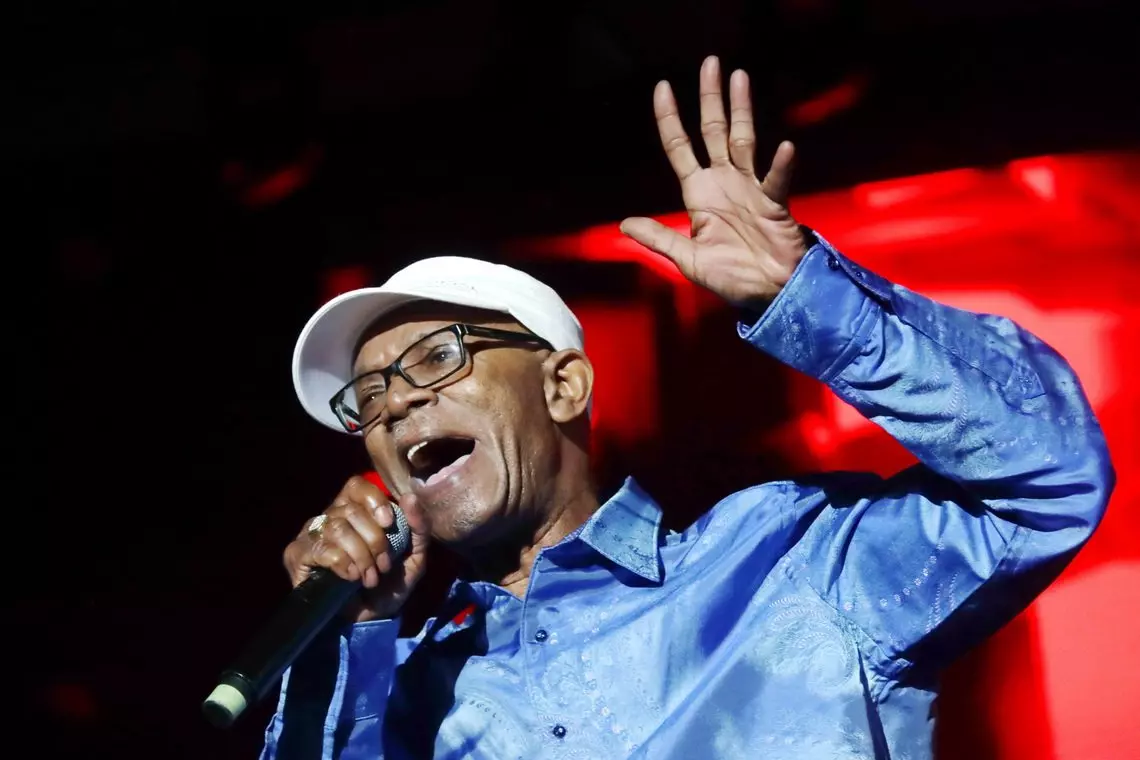
Living Legends: Beres Hammond On His Enduring Career, Timeless Music & 'Brand, Jamaica!'
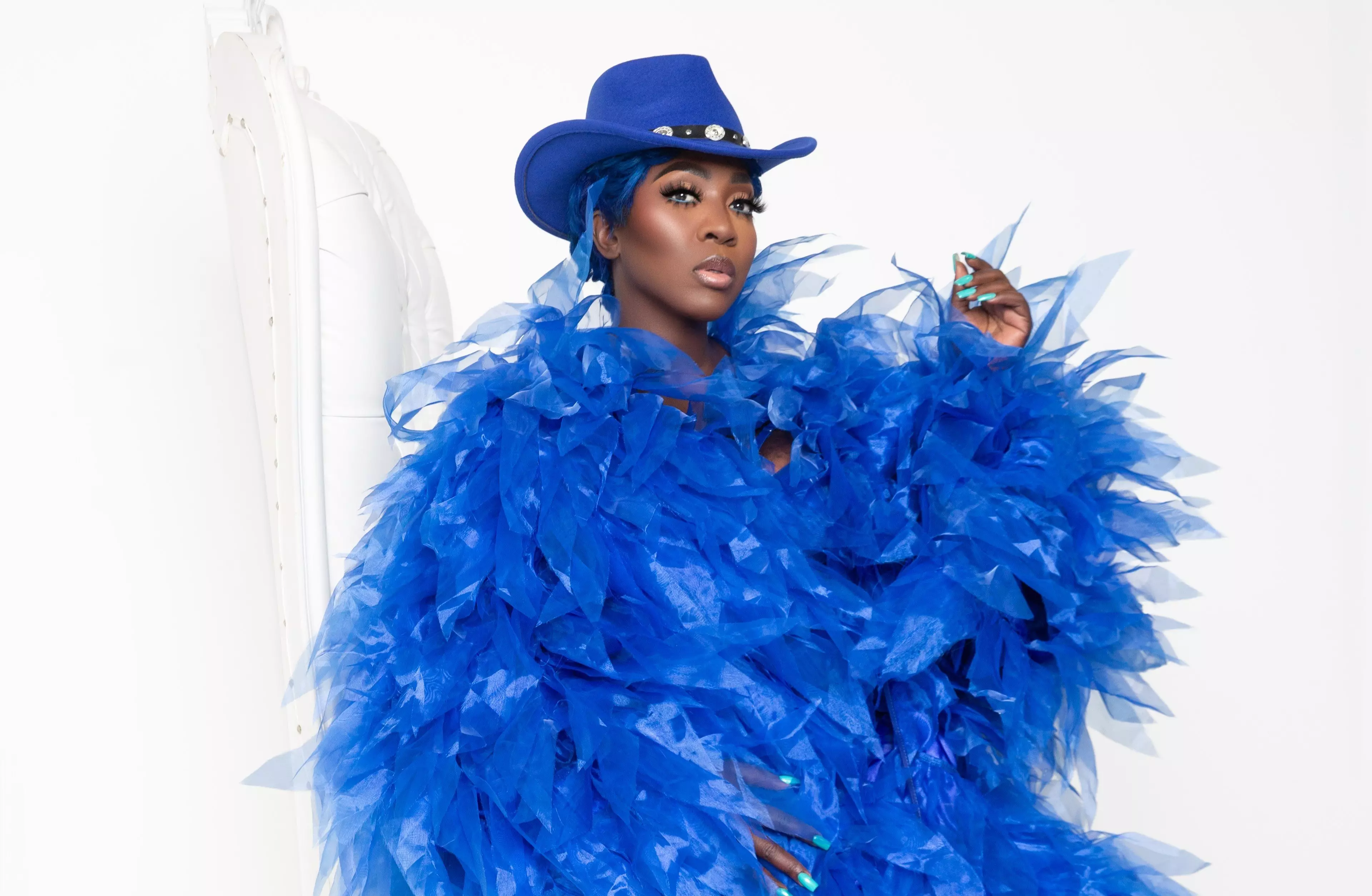
Dancehall Legend Spice Reflects On 'Mirror 25,' Her Near-Death Experience & Owning Her Own Vision
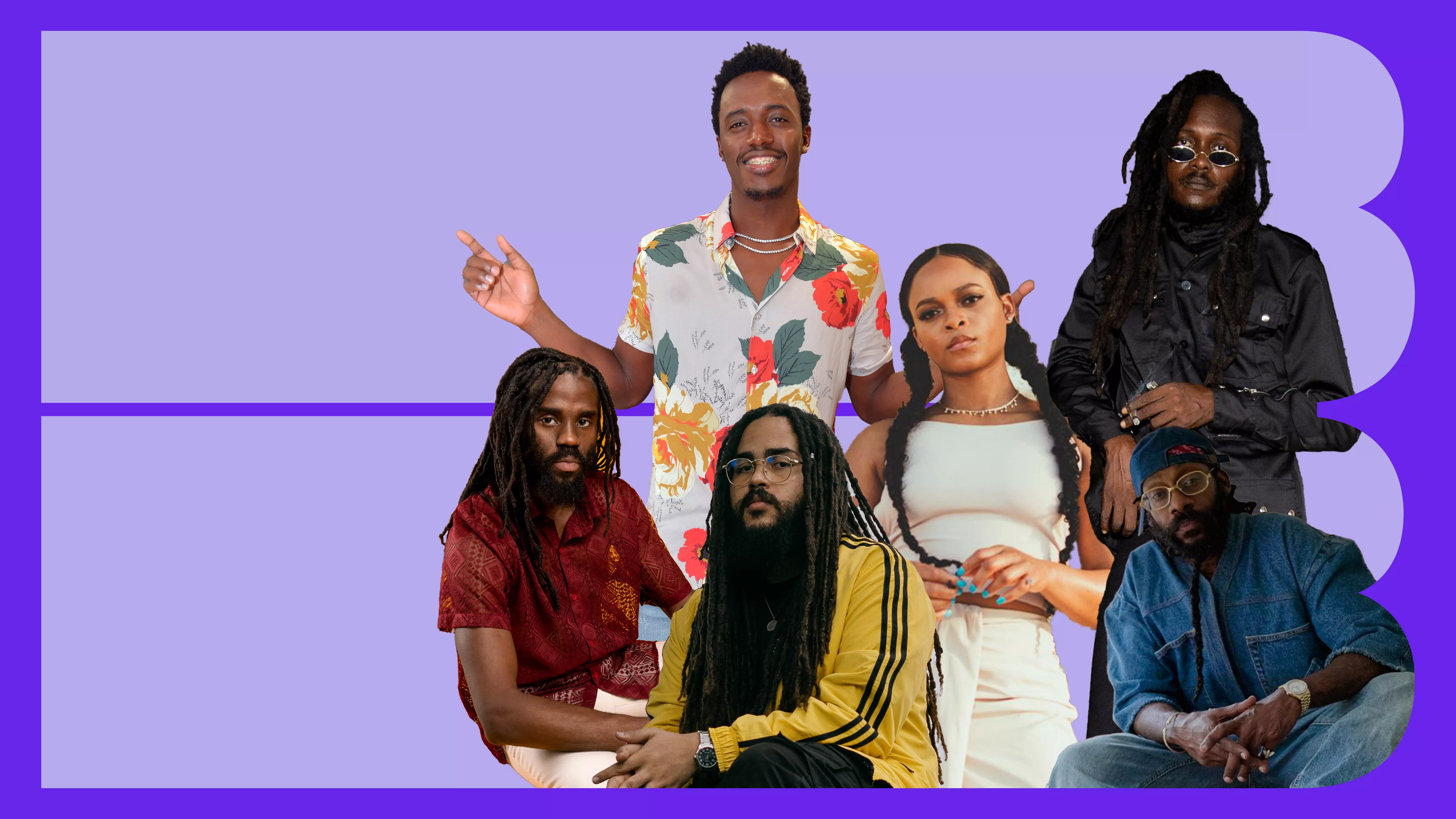
10 Artists Shaping Contemporary Reggae: Samory I, Lila Iké, Iotosh & Others
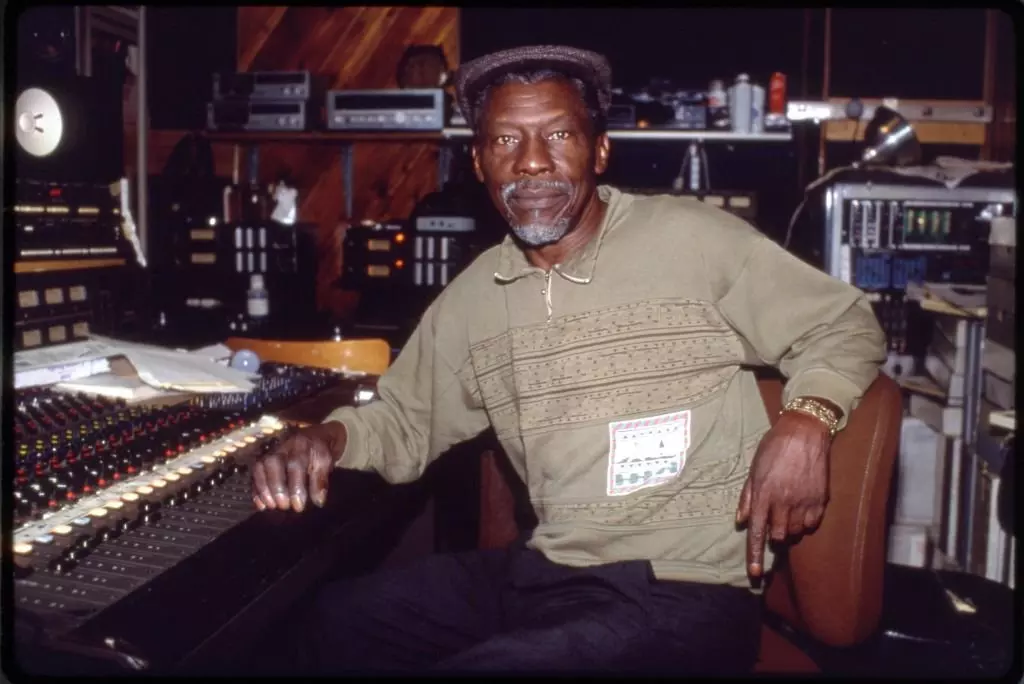
Remembering Coxsone Dodd: 10 Essential Productions From The Architect Of Jamaican Music
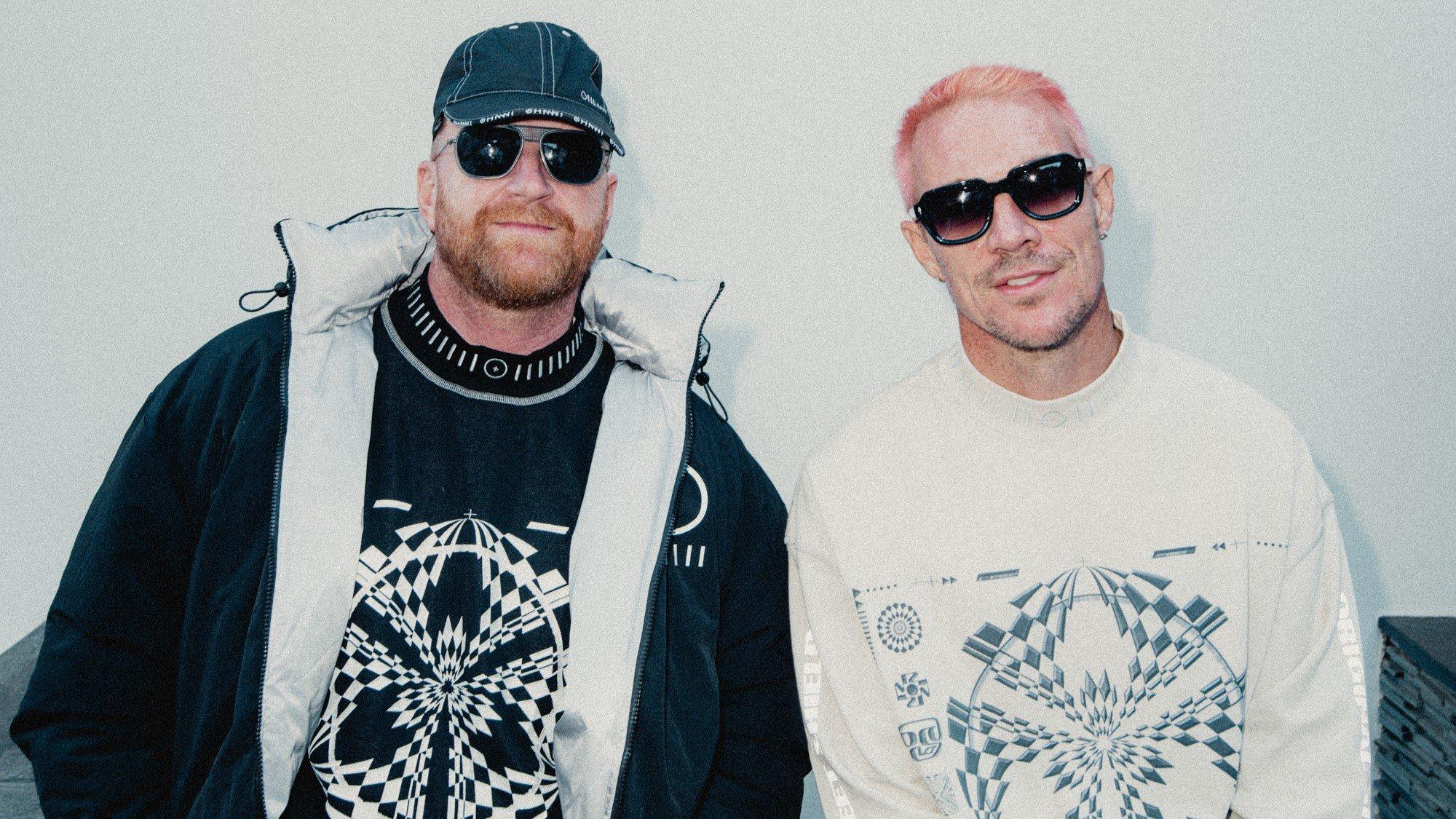
Photo: donslens
feature
How Major Lazer's 'Guns Don't Kill People…Lazers Do' Brought Dancehall To The Global Dance Floor
"We thought, if we can introduce what was going on in Jamaica to a more American environment, that would be amazing," Switch says of Major Lazer's seminal debut album.
June 12, 2009: a Friday night at popular Kingston nightclub Quad. Minutes after 2 a.m., the evening’s special guests DJs/producers Wesley "Diplo" Pentz and David "Switch" Taylor will take over the club’s DJ booth and premiere their new collaborative project: Major Lazer.
In addition to the club’s usual Friday night clientele, in attendance are dancehall scene makers and music industry personalities who've come to hear Diplo and Switch’s unique selections and the premiere of the sonic-splicing tracks from their first album under the Major Lazer guise: Guns Don’t Kill People…Lazers Do.
Recorded during a three-week period at the Marley family’s Tuff Gong studios in Kingston, Guns was released on June 16, 2009. The album juggles various sounds into a groundbreaking, genre-blurring collage of samples, audio effects and disparate influences with a significant dose of dancehall reggae’s syncopation, and a primarily Jamaican cast of vocalists.
On the album’s cover art by Ferry Gouw, (reminiscent of the vibrant Jamaican dancehall and dub album cover illustrations of the 1980s) Major Lazer is depicted as a brawny cartoon superhero, "a Jamaican commando who fights the spoils of vampires, zombies, pimps, mummies, and other unsavory forces of evil," according to the album’s press release. Aurally, however, Major Lazer’s ultimate mission was to expand the parameters of electronic dance music and present another avenue of exposure for dancehall reggae and other Caribbean rhythms.
"The intention was to translate how inspired we were by the scene in Jamaica because we drew from a lot of the sounds there," Switch tells GRAMMY.com via Zoom.
The innovative fusion of various electronic music pulses with the island’s reggae and dancehall riddims, as well as the incorporation of dub, took Guns Don’t Kill People…Lazers Do to No. 7 on Billboard’s Top Electronic Albums and No. 5 on the U.S. Top Heatseekers charts. Diplo and Switch further popularized Major Lazer with frenetic performances at raves and dance music festivals around the world.
Guns Don’t Kill People…Lazers Do turned 15 this year. In celebration, Diplo and Switch recently released a deluxe digital reissue of the album, which includes three additional tracks: "Pon De Streets," an alternate version of the original’s album’s hit single "Pon De Floor"; "Nobody Move," with new vocals by Vybz Kartel adapted to a beat created during the album’s initial recording session (found on a hard drive that was locked away in a vault for years); and "Where’s The Daddy," featuring M.I.A., who Diplo once called "the third Daddy of Major Lazer."
M.I.A. originally recorded her "Where’s The Daddy" vocals when she was pregnant (she gave birth to her son in February 2009); as an acknowledgement of that time, she cradles a baby bump throughout the song’s 2024 video.
Diplo, an American, and the British Switch were both immersed in house and other forms of electronic music prior to creating Major Lazer. They merged their cutting-edge, genre-defying approaches on their co-production of M.I.A's chart-topping "Paper Planes"; the song was nominated for Record Of The Year at the 51st GRAMMY Awards.
Diplo and Switch made several beats for M.I.A. that were never used, and decided to record them in Jamaica where, as Diplo noted on X, "the artists were extremely talented, the Jamaican music scene at the time was cutting edge and it was cheap to work there." Those surplus beats coupled with the pair’s ongoing fascination with Jamaica’s dancehall culture led to the creation of Major Lazer.
"It was incredible going to the parties there, whether on the streets or in the clubs, and seeing the interaction between the crowds, the selectors and the deejays," Switch explains. "We were cutting our teeth as DJs and producers and wanted to do something different; we thought, if we can introduce what was going on in Jamaica to a more American environment, that would be amazing, so that’s what we set out to do."
Despite their respective accomplishments as DJs/producers, Diplo and Switch were largely unknown to the Quad’s Friday night patrons at the time of Major Lazer’s debut. They worked hard to win the crowd over with a set that alternated between pounding techno beats, customized dancehall selections, an array of audio effects and a computerized voice that sporadically intoned "Major Lazer." Despite their best efforts, the clubgoers remained indifferent until an appearance by a comical African character calling himself Prince Zimboo (featured on the album’s track "Baby," which incorporates an auto-tuned cry of an infant that’s sampled on elsewhere on the record) thawed the audience’s initially icy response.
Via email, Diplo recalls Major Lazer’s Jamaica debut with brutal candor: "We sucked…basically got booed but Prince Zimboo told a bunch of good jokes and people were happy to have some funny-ass crackers in the club."
Switch, who reflects on that night with greater fondness, remembers feeling "confident that we could play music that no one else had, but could we step into that scene that had inspired us?"
While Switch recalls being nervous about not having a vocalist toasting live on the riddims or hyping up the crowd, he revealed, "more preparation went into that set than either of us has pulled off together or individually. Diplo and I made our own dubs. We took acapella dancehall vocals and put them on our beats, put new vocals on already established dancehall beats and juggled a lot of sounds."
Guns Don’t Kill People…Lazers Do, released four days after their Quad gig, kicks off with "Hold The Line," a crackling spaghetti Western meets surf rock soundscape. An immediate indication of Major Lazer’s preparation and myriad influences, the tune is punctuated by the mantra-like, hi-pitched vocals of barrier-breaking singer Santigold, sharp patois verses from Jamaica’s Mr. Lexx, neighing horses and ringing phones, an eclectic combination designed to make the listener "vibrate like a Nokia."
What follows is the intergalactic throb of "When You Hear the Bassline" (featuring Jamaica’s Miss Thing), the near-psychedelic, cavernous dub resonance of "Lazer Theme" (Jamaica’s Future Trouble), and appealing pop-soca flavored dancehall on "Keep It Goin’ Louder." Artists from the diaspora abound: Queens’ Nina Sky and Brooklyn-based Jamaican Ricky Blaze appear on "Keep It, Goin’ Louder" while Guyana born, Brooklyn raised singer Jahdan Blakkamoore’s exquisite vocals swirl amidst the delay and reverb on the dub-drenched Rasta empowerment anthem "Cash Flow."
"We just wanted to add to the lexicon of dancehall," Diplo writes of the album. "We never tried to elevate or move the sound forward…we just wanted to make something weird."
Out of the weirdness came a significant hit — and the album’s most-streamed track — "Pon De Floor." Created with additional production by Dutch DJ Afrojack, "Pon De Floor" is dominated by a sputtering synth over a marching band snare drum pattern; dancehall’s "Worl’ Boss," Kartel rhymes "baby, get in line, let me see your bestest wine."
"Jamaican DJ crew Chromatic made 'Pon De Floor' a hit in Kingston and it grew from there to the rest of the world," Diplo notes. The track reached the UK Singles Chart, was featured on the "DJ Hero 2" video game, and then attained widespread attention when sampled on Beyoncé’s 2011 hit "Run the World (Girls)."
The song’s stylized video, (think "Pee-wee’s Playhouse" meets Kingston’s now defunct Passa Passa street dance) was directed by comedian Eric Wareheim. The video stars Skerritt Bwoy, Major Lazer’s former hype man, who introduced many viewers to the hypersexualized dancehall "dance" ritual known as daggering.
"'Pon De Floor' was unlike anything that was going on in Jamaica at the time, but it was inspired by the energy of the clubs there," Switch remarks. "I remember going to Hellshire Beach and the DJ at an event there pulled the record up three or four times. Watching the crowd’s reaction, it was like we were vindicated, the song penetrated the real Jamaica scene, people are ok with us; that was a real thrill."
Yet, some weren’t ok with Major Lazer, two white foreigners spearheading a Black Jamaica-rooted album. Protests of cultural appropriation were cited in some reviews, without considering the credentials of the Caribbean artists involved and the benefits many of them derived from it.
"Major Lazer did wonders for me," Vybz Kartel tells GRAMMY.com. "They helped to push me to an audience that normally wouldn’t know Vybz Kartel; with 'Pon de Floor' they could put a name and a face to the song, which definitely gave me a lot of new fans, so big up Major Lazer, every time."
"It was incorrect to think we were doing anything like cultural appropriation, it was journalistic," adds Switch. "We found something that we thought would be appealing and wanted to champion it, expose it. We ended up with Vybz Kartel being on a Beyoncé record, the two farthest apart worlds colliding, and we’re very grateful that we got to bridge that gap."
As Major Lazer’s popularity escalated, Switch decided to leave in 2011, preferring to remain behind the scenes, producing and developing his songwriting skills. "At that time [Diplo] was very focused on the opposite, he was taking the DJ world by storm and it felt like he was fine doing it on his own, collaborating with the people he went on to collaborate with," acknowledges Switch. "But we never really stopped working on stuff together."
In a recent video, Diplo said he considers Guns Don’t Kill People…Lazer’s Do to be "a little bit of punk, a little bit of dancehall, a little bit of pop songwriting" made "really, really fun." "We had nothing to prove, we just decided to put out something that was crazy. I think the album really hit with people because they loved the roughness of it. It had no rules and I think it was very important to break the stereotypes."
Guns Don’t Kill People…Lazer’s Do reminds music fans that dub — created through the innovations of King Tubby and Lee "Scratch" Perry — established the template for remixes by demonstrating the infinite possibilities for deconstructing a recorded work. It also served as a reminder that dancehall reggae, which utilized digitized instrumentation beginning in the mid-1980s, are not only forms of dance music, but have played significant roles in its evolution. Switch adds that the album brought greater attention to dancehall/reggae at a time when international interest in the music had waned.
"I think the album really opened the door for dancehall, not just in dance music but pop music as well. If you listen to what Benny Blanco does with Ed Sheeran, that’s about as mainstream as it gets."
There’s a subtle Jamaican deejay cadence in Sheeran’s vocals on "Don’t" and a lilting, off-beat reggae guitar strum on "Take It Back," produced, respectively, by Blanco and Rick Rubin, for Sheeran’s 2014 album x (Multiply). Sheeran’s 2017 album ÷ (Divide) includes the dancehall inflected hit "Shape of You," which topped Billboard’s 2017 year-end singles chart).
"I’m not saying that wouldn’t have happened without Major Lazer," Switch continues, "but I feel like we oiled the cogs and pointed out a different kind of rhythm that had greater commercial prospects in the pop world, coming from the dancehall scene in Kingston."
More Dance & Electronic Music News
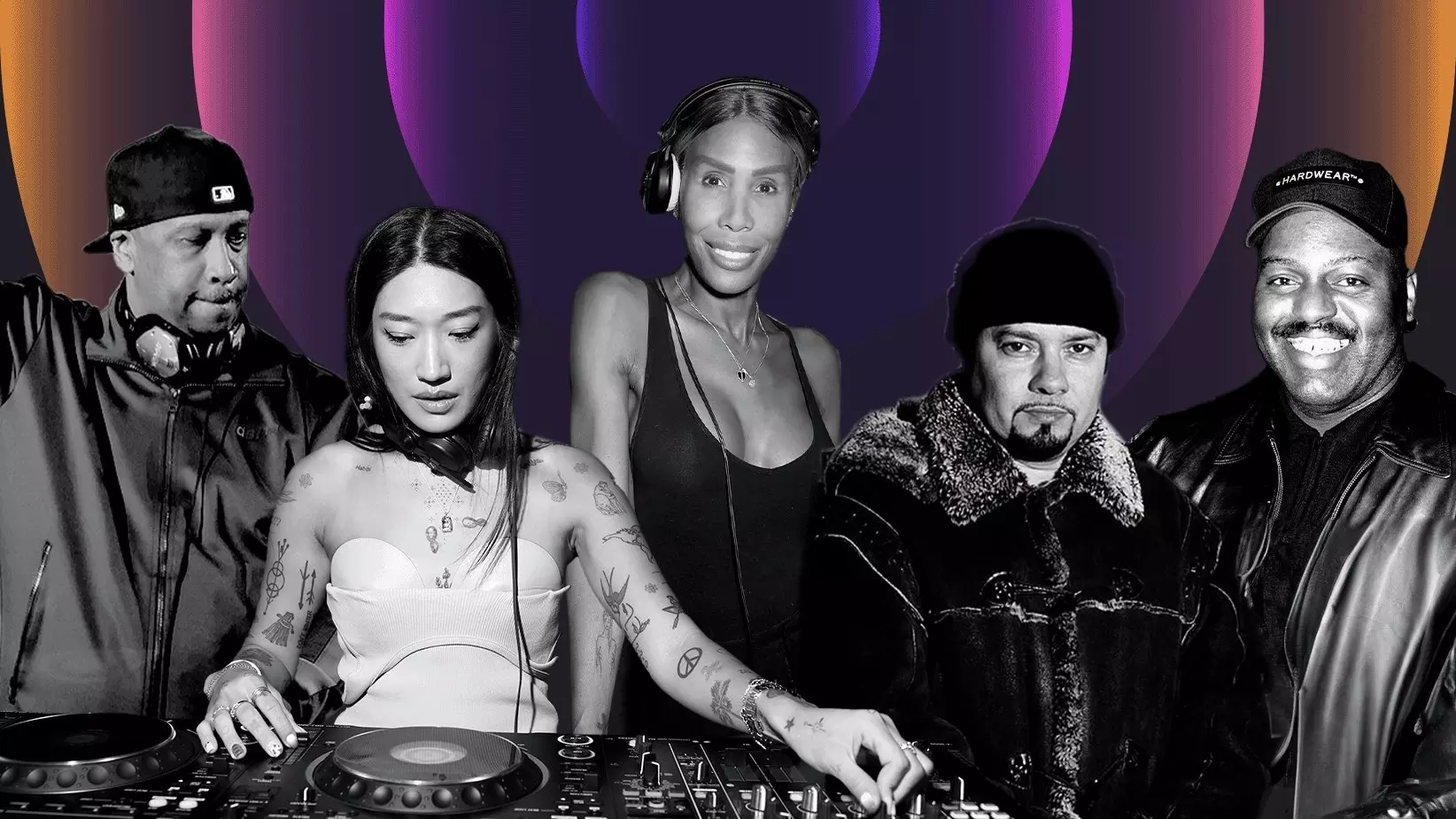
A Timeline Of House Music: Key Moments, Artists & Tracks That Shaped The Foundational Dance Music Genre
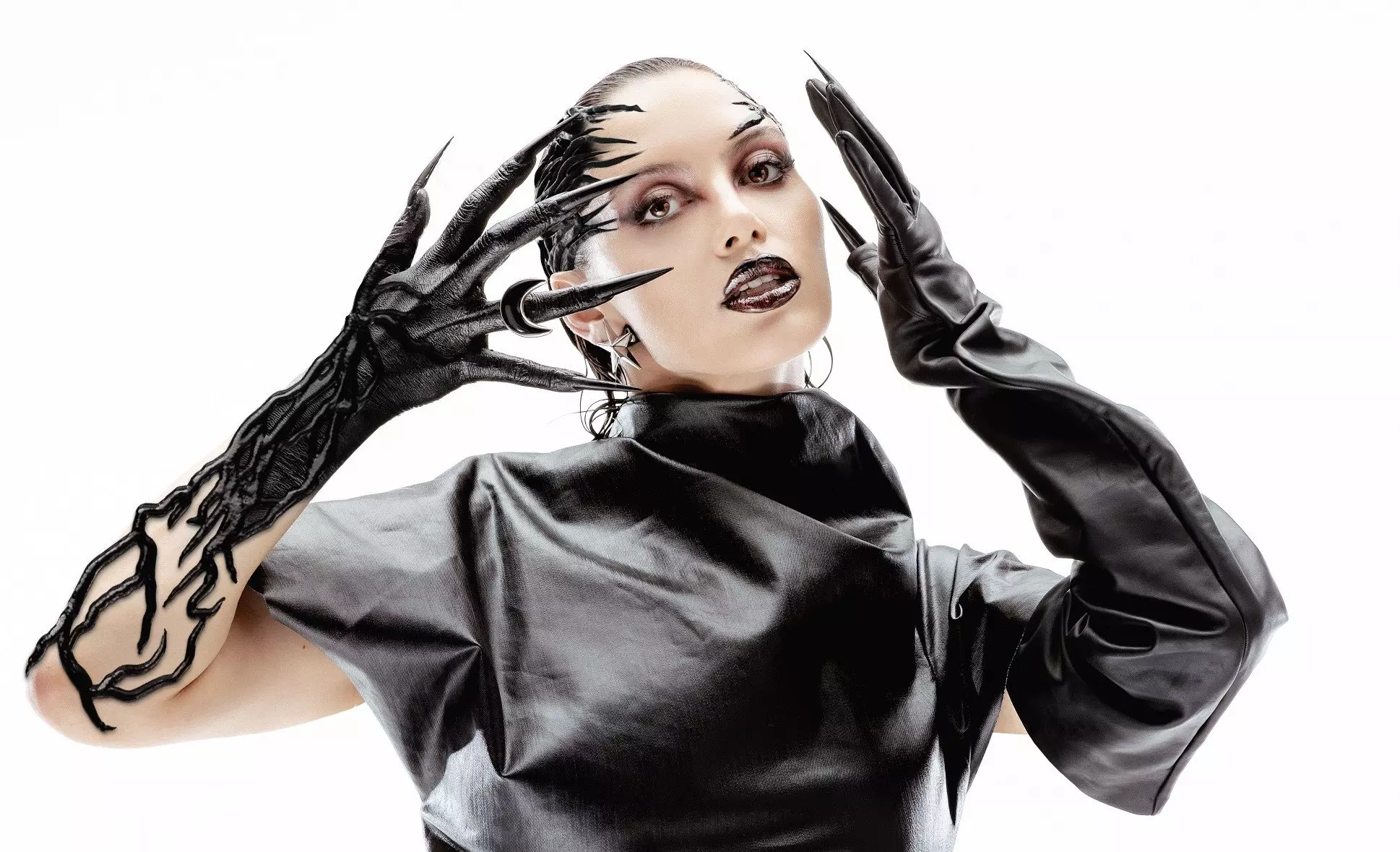
Hard Techno Maven Sara Landry Talks 'Spiritual Driveby,' Creating A Safe Space For Emotion & Leaving It All On The Dance Floor

Zedd's Road To 'Telos': How Creating For Himself & Disregarding Commercial Appeal Led To An Evolutionary New Album
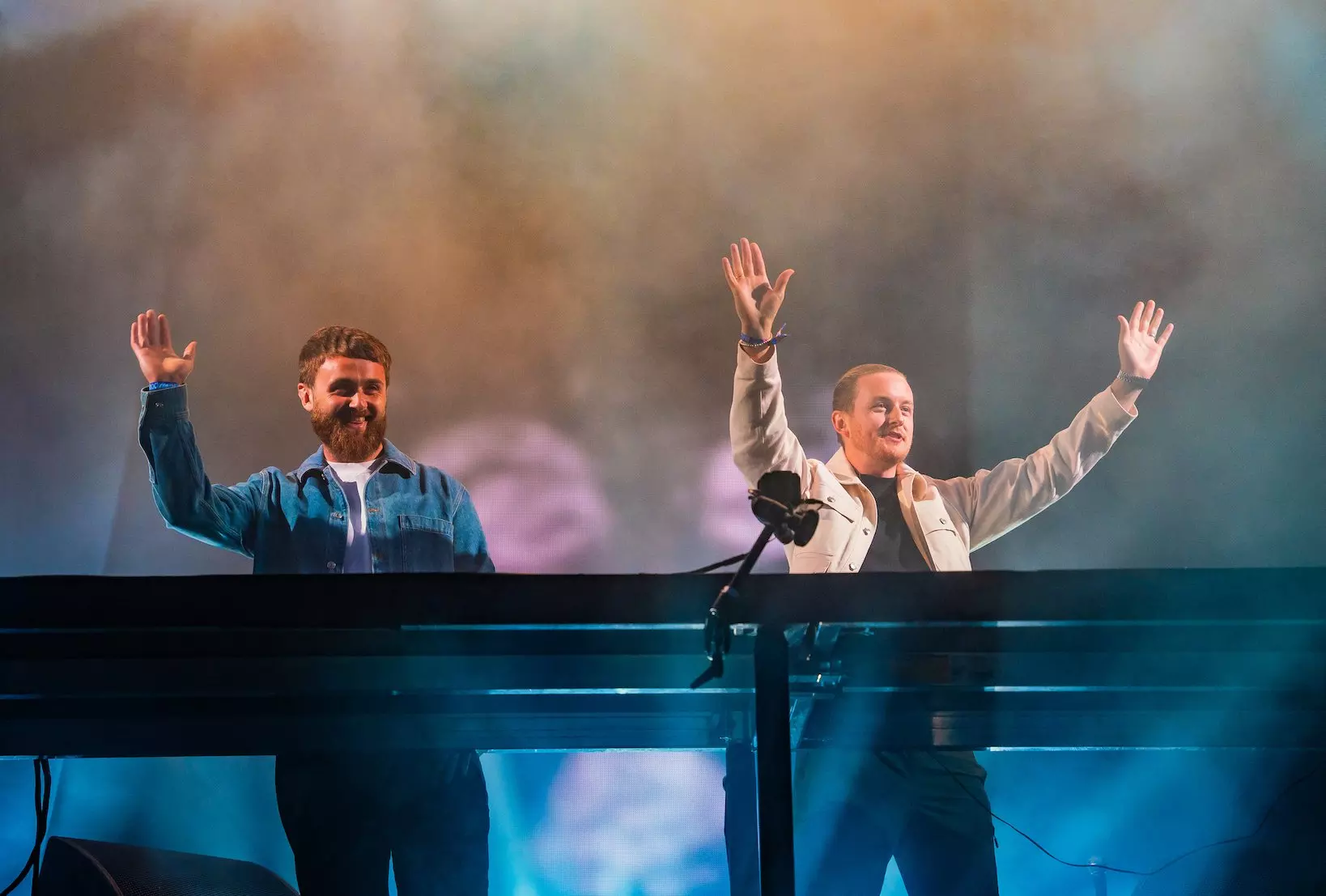
10 Cant-Miss Sets At HARD Summer 2024: Disclosure, Boys Noize, INVT & More
.webp)
Machinedrum's New Album '3FOR82' Taps Into The Spirit Of His Younger Years
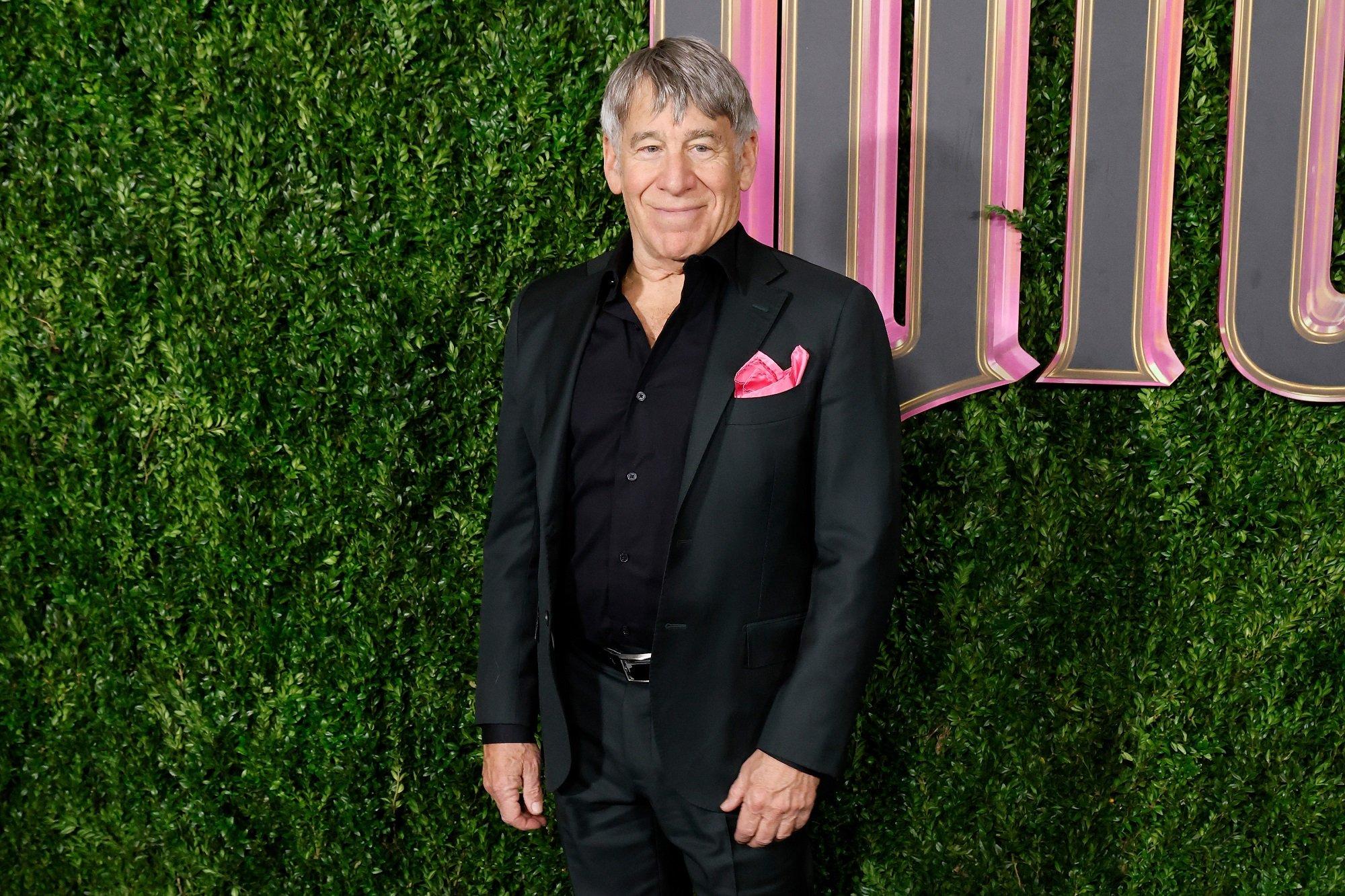
Photo: Taylor Hill/FilmMagic
interview
'Wicked' Composer Stephen Schwartz Details His Journey Down The Yellow Brick Road
Ahead of the brand-new movie musical, Schwartz details the writing and composition process, and which classic lines Ariana Grande was adamant about keeping in the script.
Many years we have waited for a gift like Wicked to appear on the silver screen.
The Broadway show and its iconic songs like "Popular" and "Defying Gravity" might not exist without the persuasion of Stephen Schwartz. The four-time GRAMMY-winning composer was instrumental in transforming Gregory Maguire’s 1995 novel about the Wicked Witch of the West’s pre-Dorothy life into a musical, before a movie.
A prequel to 1939’s The Wizard of Oz, "Wicked" the musical flew onto Broadway in 2003 starring Idina Menzel as Elphaba (the Wicked Witch) and Kristin Chenoweth as Glinda (the Good Witch). It earned a GRAMMY Award for Best Musical Theater Album and has become a mega juggernaut in pop culture. Twenty-one years later, Wicked: Part I arrives in movie theaters on Nov.22 starring GRAMMY Award winners Cynthia Erivo as Elphaba and Ariana Grande as Glinda. The soundtrack will also be released on the same day.
Schwartz, who wrote the music and lyrics for Wicked, was part of the creative team who helped bring this beloved story to new audiences. "I am so thrilled with this album for many reasons. Not obviously just the performances of Cynthia and Ariana, but the sound of the orchestra, that incredibly gorgeous, giant orchestra," Schwartz tells GRAMMY.com of the 85 musicians who recorded the songs and score at AIR Studios and Abbey Road in London.
The musical has spent over two decades on Broadway, and the film fittingly brings together many Glindas and Elphabas from the stage. Several Broadway actors are background vocalists on the album, which was recorded in part in New York City.
Wicked: Part II is expected to debut in theaters on Nov. 21, 2025, with two new songs written by Schwartz — one for each leading lady. Ahead of part one, GRAMMY.com spoke with Schwartz all about revisiting his songs for film, working with Grande and Erivo on their vocal tracks, and the musical differences between the stage and film adaptations of Wicked.
What do you think of the film after waiting all these years?
I was really happy with the movie. They were originally trying to make a movie, before I talked them out of that in 1997 and into doing a stage musical. I first heard about the book Wicked [The Life and Times of the Wicked Witch of the West] from a friend, she basically told me the title and the idea. I thought it was a genius inspiration of [author] Gregory Maguire's to have the idea to make the Wicked Witch of the West the protagonist of a story. I was immediately interested in that concept for a musical.
I discovered that the rights had been sold to Universal who were in the process of developing it as a non-musical movie. I worked my way up the Universal food chain to get to Mark Platt, who was running Universal Pictures at the time, and persuaded him not to do it as a movie — at least not right away. I felt it was likely to meet the same fate as the other Oz movie sequels had. I felt it should be a musical, and if it worked as a musical, then someday it could be a musical movie, and here we are, many decades later.
I was very lucky because I think it would have been quite unlikely for most heads of a studio to abandon a movie that they were working on and had a bit of an investment in at that point. But when I walked into the office, Mark Platt sang "Corner of the Sky" to me. So, I happened to luck into a receptive audience to my idea.
What, if any, was your input into casting Ariana Grande and Cynthia Erivo?
We’ve been lucky with our director, Jon Chu, because he is extremely collaborative. Very often, I think, if you sell your show to the movies, they say, "Thank you very much. Go away. Maybe we'll invite you to the premiere." Here we were very actively involved and part of that was being consulted on casting.
Jon Chu obviously narrowed down his choices, but sent us some screen tests, which included both Cynthia and Ariana. I was familiar with Cynthia from her stage work, and I knew that she had a world-class voice. Obviously I knew who Ariana was, but I was kind of unprepared for how great and appropriate both of them seemed in their screen tests.
Here's a fun fact about Ariana singing. Several years ago, the pop singer Mika released a single that was sort of a spin off of "Popular," called "Popular Song." He had a singer with him on that record, and that was Ariana Grande, before she was Ariana Grande.
Over the years, you had heard both of them sing your songs: Cynthia sang "Thank Goodness" in a PBS special in 2021 and Ariana sang "The Wizard and I" for the 15th anniversary of the musical on NBC. There’s this story of how Jon M. Chu first got both of them in the room together, you sat at the piano and played "For Good." What do you remember about that night?
The whole night was so amazing because they were meeting for the first time. Cynthia and Ariana had such instant chemistry; when they sang at the piano, their voices blended so beautifully together. As the composer, the fact that their voices blend so well was obviously a lucky asset. That chemistry shows up in the movie and it's a key to why I think people find the movie so emotionally satisfying.
Did you know you were going to sit at the piano and play that song?
They were like, "Let's all go inside. And Stephen, why don't you play? Ladies, if you know the words, sing along." It was extremely impromptu. Everybody cried, so it was very emotional and exhilarating.
Of all the Elphaba and Glindas you've worked with over the years, what was special about working with Ariana and Cynthia?
Both bring enormous recording skills with them. They can kind of do anything vocally in a recording studio, and they're both extremely game to try things. We would experiment and Cynthia would try various riffs that came out of the performance. Ariana, at first, was a little tentative about her soprano — which she absolutely has and always had — but had never basically shown in public before. Those sessions were really fun, because as they went on and she could hear how well she was doing, it was exciting and fun for her. They both can listen quite objectively to their performances and comment on how to tweak them.
The great advantage of both of them is that, because they are real singers and have sung on a Broadway stage, they could do live performances when filming as well. We were able to inter-cut the live performances with where we had to use pre-record because someone was flying on a broom or floating in a bubble or doing something that didn't allow them to sing live.
The way their voices sounded in the recording studio needed to match how they sounded when they were on a soundstage, and that was tricky. We had a strong technical team and we were very aware going in that we were going to mix and match.
What advice did you give them?
Just what I always do, which is to talk about storytelling and to remind them what's happening: [Glinda] trying to convince [Elphaba in "Popular"] to let her make her over — or with [Elphaba in "Defying Gravity"] — this is the moment where you demand your power.
With singers like Ariana and Cynthia, who have such great instruments and such virtuosic control of their instruments, I don't have to say things like, "You're flat" or "Sing lighter here," or give any kind of technical notes, because they just bring that. It's always about the acting and the storytelling.
How might the songs sound different in the movie versus the Broadway show? Some of them are much longer.
The word cinematic keeps coming to mind. There's this huge, magical world that Jon Chu has created and the music needed to have the size to occupy that world.
Eighty-five musicians [working in a recording studio] is different from the 23 or so that you can have on Broadway. Songs needed to be adjusted based on the action we’re seeing on the screen. In some cases, things were expanded.
What was the thought behind expanding Elphaba and Glinda’s first visit to Emerald City in the song "One Short Day?"
We wanted to show more of how the Wizard [Jeff Goldblum] was using propaganda to create a fake image and false history for himself. We had the idea [to add it] to this show they play [for Glinda and Elphaba] in Emerald City called "Wizomania," which is briefly done in the Broadway show and kind of a send up to Funny Girl and Jule Styne-type rhymes. "Wizomania" is basically perpetuating the myth that there were ancient magical, wise ones in Oz, who set down all their magic in a book, but they put it in a secret language. That book is The Grimmerie.
We knew that book was very important to the story of the movie, and so we wanted to go into more depth about it. There was a prophecy that when Oz fell into difficult times, someone would come who would be able to read The Grimmerie and restore Oz to merriment. They're looking for someone who could actually read this book and actually do some magic to help the Wizard stay in power.
You also make a cameo at the end of the song as they approach the gates to see the Wizard!
Jon Chu said to [screenwriter and the musical’s book writer] Winnie [Holzman] and me that we should be in the movie. So we wrote ourselves in. We were just going to be people in the crowd.
When we first did "One Short Day," I had cut that last line "The Wizard will see you now!" — I thought we don't need to do that in the movie, because we'll just see them right there at the palace. And Ariana said, "If you cut that line, I'm quitting the movie. You have to have ‘The Wizard will see you now!’"
It wound up being my line. I will say that when I went in for costume and makeup, they gave me two choices of mustaches. I said they had to give me the big mustache because I have to be like Frank Morgan. I have to be the guy [from the 1939 film] who says, "Who rang that bell?"
I think fans would be devastated if that line wasn’t in it.
One of the things that was so good about this team — particularly Jon Chu and Ariana, because she knows the show so well — was that they protected Winnie and me. We said we’ll change whatever we need to change and Jon would say, "No, you can't change that. You have to keep that."
Greg Wells, our producer, wanted to refresh the rhythmic feel of "Popular" and make it a little more contemporary. Greg came up with something which was really fun, and we played for Ariana. And she said, "Absolutely not. I want to be Glinda. I don't want people to think that I'm Ariana Grande playing Glinda. If they hear this kind of different rhythm, they're going to think you changed it because of me, and I don't want to do that." So then we went back to the original.
Do you think we'll ever see Ariana and Cynthia on Broadway again?
You might. I don't think right away because they're going to be doing another year of promoting [the new film]. I could see the circumstances where years from now they're doing Gypsy or somebody writes a musical built for one of them. I could definitely see it.**
Latest News & Exclusive Videos

How Major Lazer's 'Guns Don't Kill People…Lazers Do' Brought Dancehall To The Global Dance Floor

YOASOBI Performs "Idol" | Global Spin
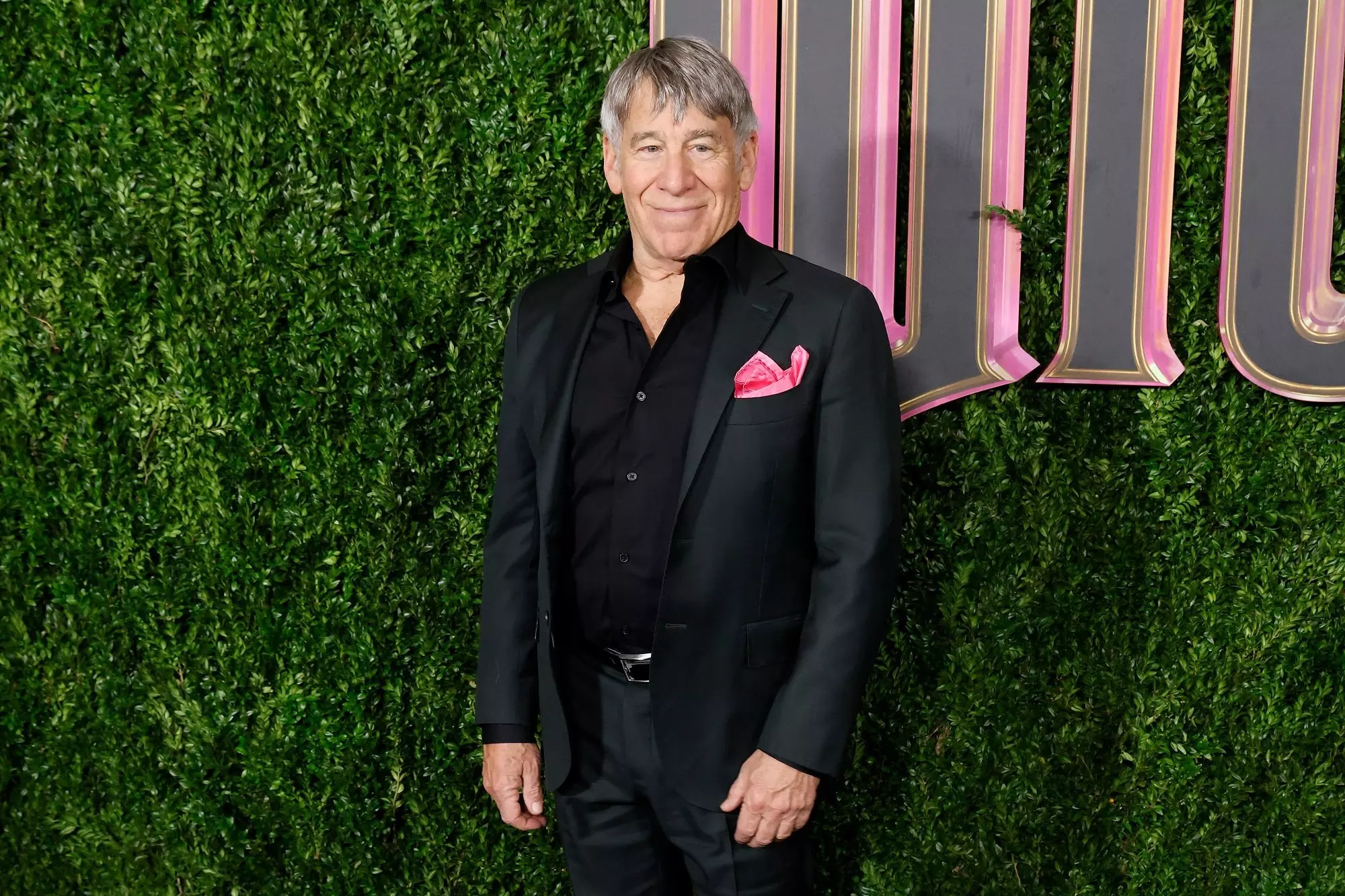
'Wicked' Composer Stephen Schwartz Details His Journey Down The Yellow Brick Road
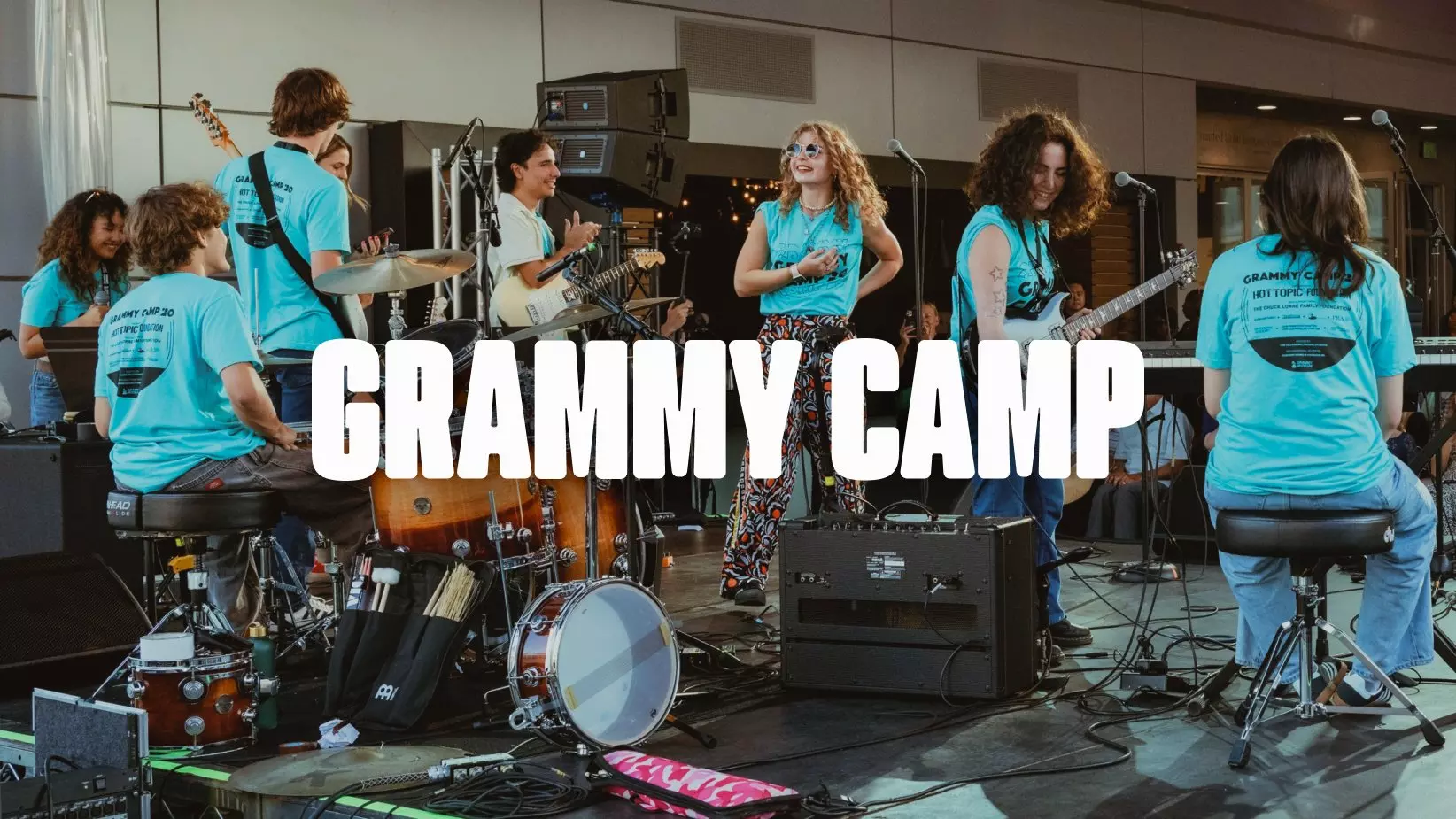
GRAMMY Museum Expands GRAMMY Camp To New York & Miami For Summer 2025
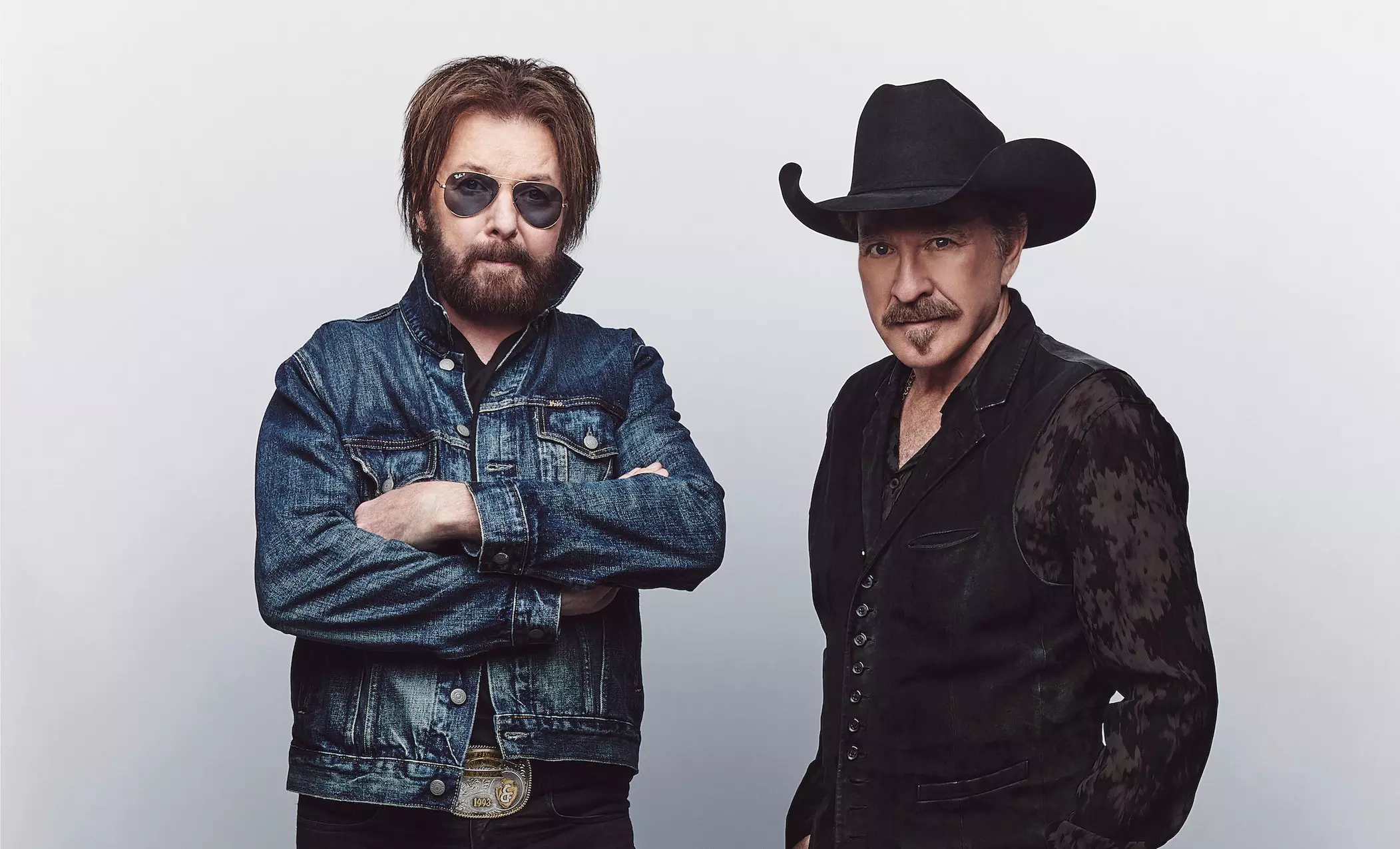
Living Legends: Brooks & Dunn On How 'Reboot II' Is A Continuation Of "Winging It From Day One"
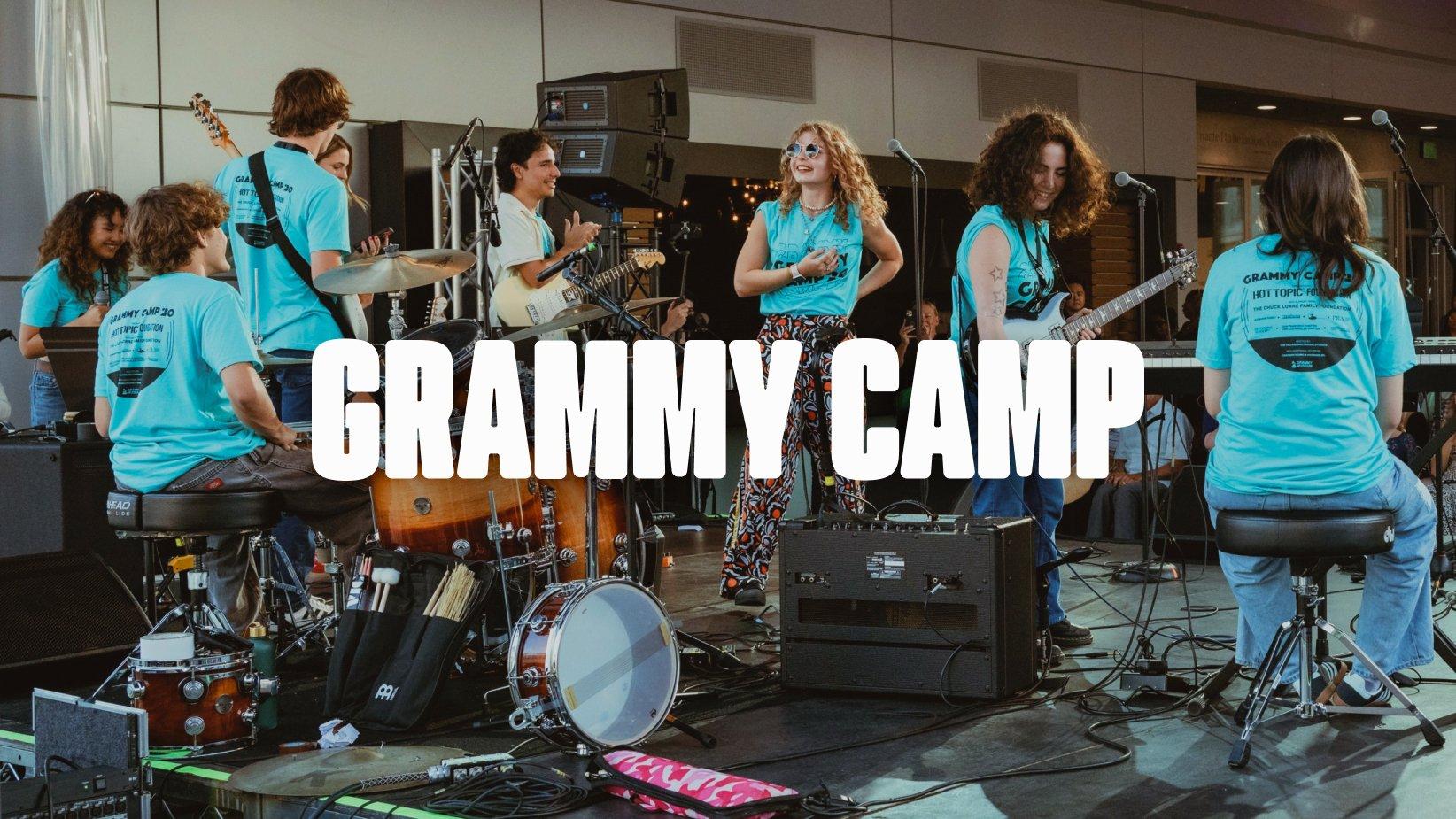
Photo/Graphic courtesy of the GRAMMY Museum
news
GRAMMY Museum Expands GRAMMY Camp To New York & Miami For Summer 2025
The GRAMMY Museum broadens access for aspiring young musicians and creative entrepreneurs nationwide with new GRAMMY Camp locations in New York and Miami, in addition to its flagship Los Angeles program.
The GRAMMY Museum is making its prestigious GRAMMY Camp program more accessible to high school students across the United States by expanding to New York and Miami in summer 2025. Known for its immersive, week-long curriculum, GRAMMY Camp provides aspiring musicians and creative entrepreneurs with real-world insights into the music industry.
Now in its 21st year, the 2025 GRAMMY Camp will be hosted in three locations next summer:
Art House Studios, Miami, FL – June 8-14, 2025
Evergreen Enterprise Experience, Los Angeles, CA – July 13-19, 2025
Engine Room Audio, New York, NY – July 27-Aug. 2, 2025
The program offers career tracks including Music Business, Instrumental Performance, Electronic Music Production, Songwriting, and Vocal Performance. Each location will also tailor its curriculum to highlight the city's unique musical heritage, incorporating specialized tracks such as Musical Theater, Jazz and Latin Music, and DJ-focused music production.
"Expanding GRAMMY Camp from one to three cities enables us to deepen our engagement with the next generation of music makers,” said Michael Sticka, President/CEO of the GRAMMY Museum. "Our new locations in Miami and New York mark just the beginning of our long-term plans to build upon the lasting impact we’ve made in Los Angeles, making the program more accessible to young people across the country.”
Participants will learn directly from GRAMMY-winning and nominated professionals, industry experts, and notable guest artists. Students are immersed in a collaborative environment where they are selected for one career track but have the opportunity to interact and collaborate with peers across all disciplines.
Applications for GRAMMY Camp 2025 are now open to high school students nationwide. Interested students can apply at the GRAMMY Museum website.
Latest Recording Academy News & Initiatives
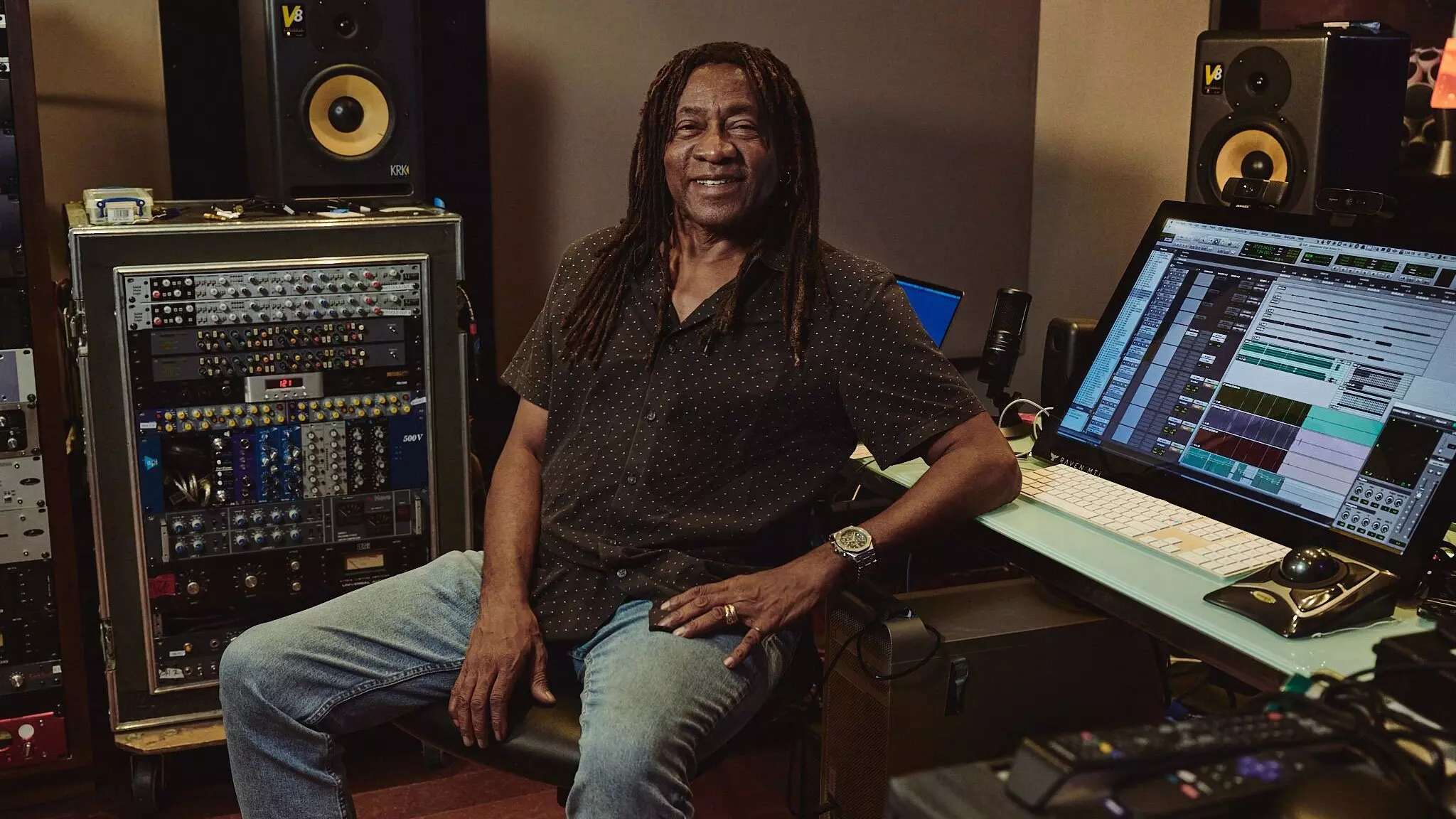
The Recording Academy Producers & Engineers Wing To Honor Jimmy Douglass During 2025 GRAMMY Week Celebration
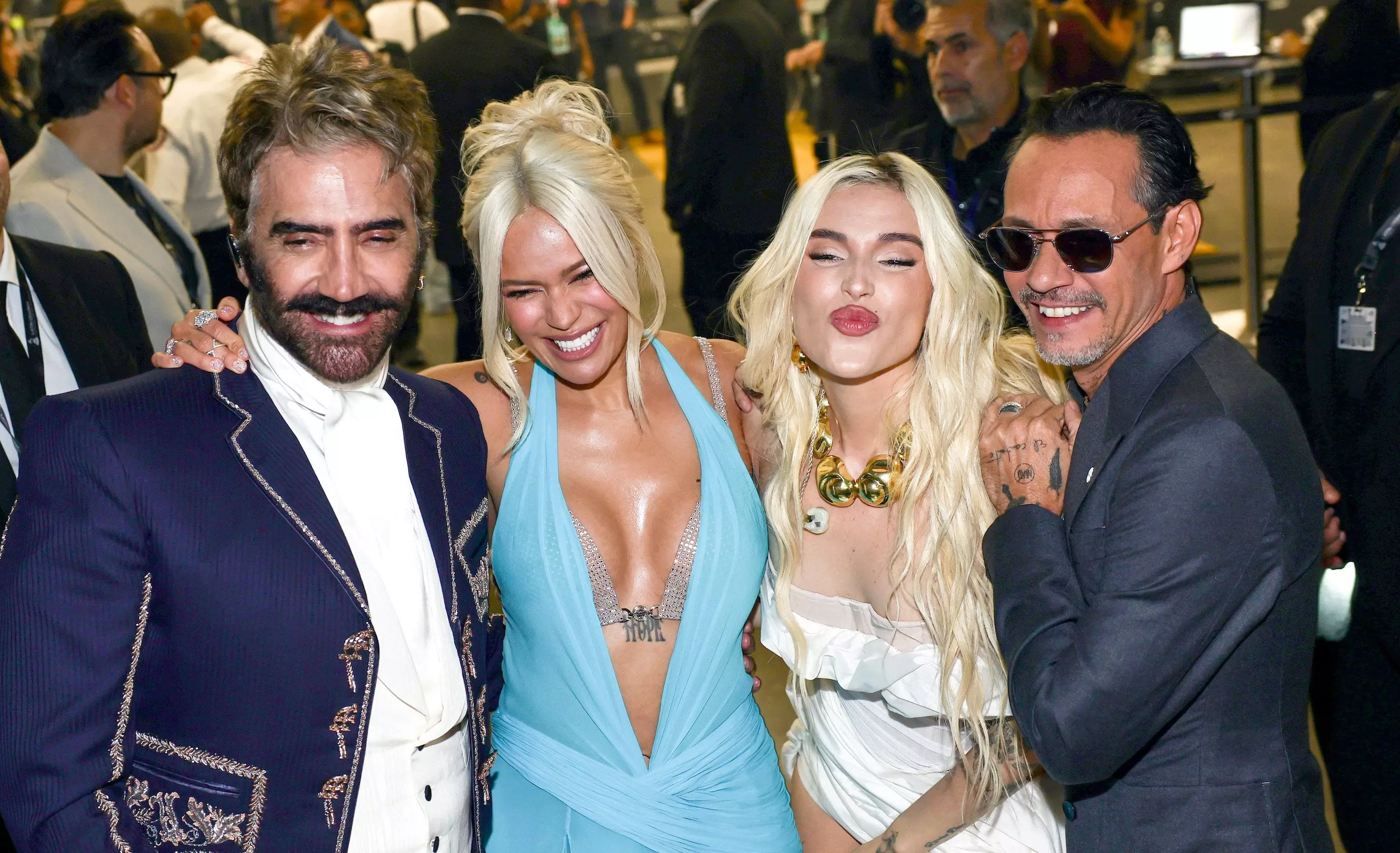
10 Meaningful Moments From The 2024 Latin GRAMMYs: Karol G's Heartfelt Speech, Tributes To Late Legends & More
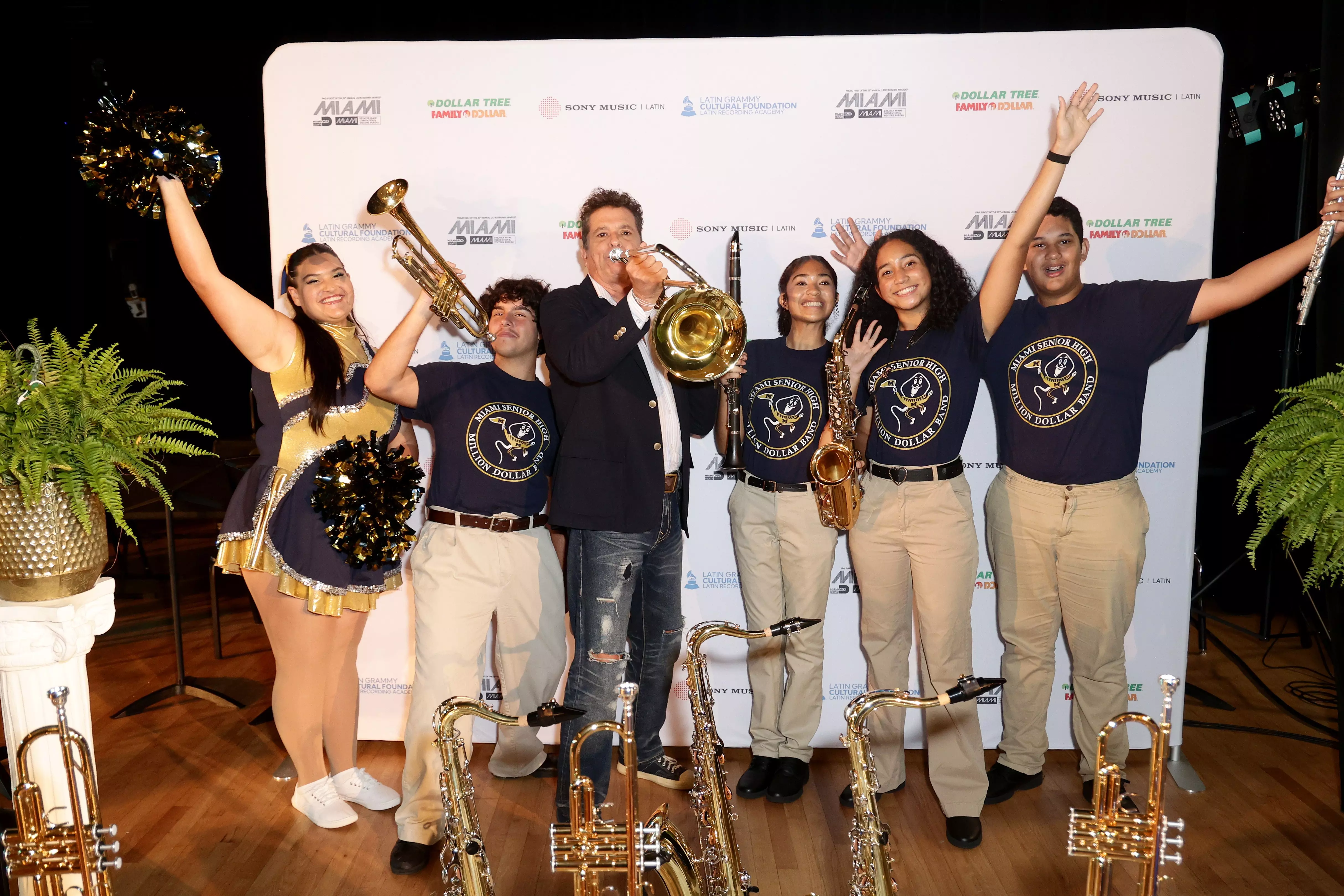
Behind The Scenes At Latin GRAMMY Week 2024: Inside VIP Celebrations & More
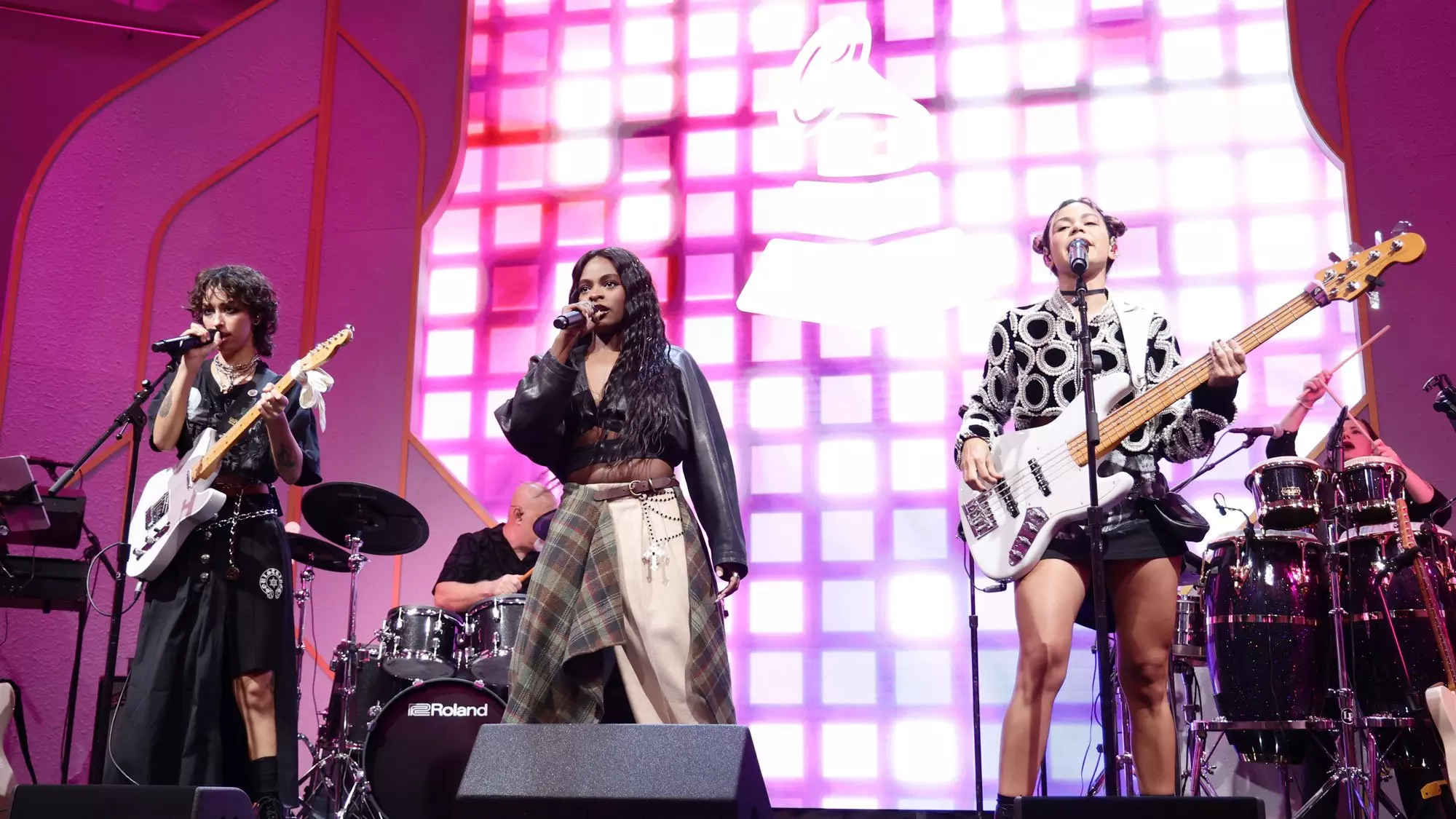
Agris, DARUMAS, Ela Taubert, Kevin Aguilar & More Perform At The 2024 Latin GRAMMYs Best New Artist Showcase
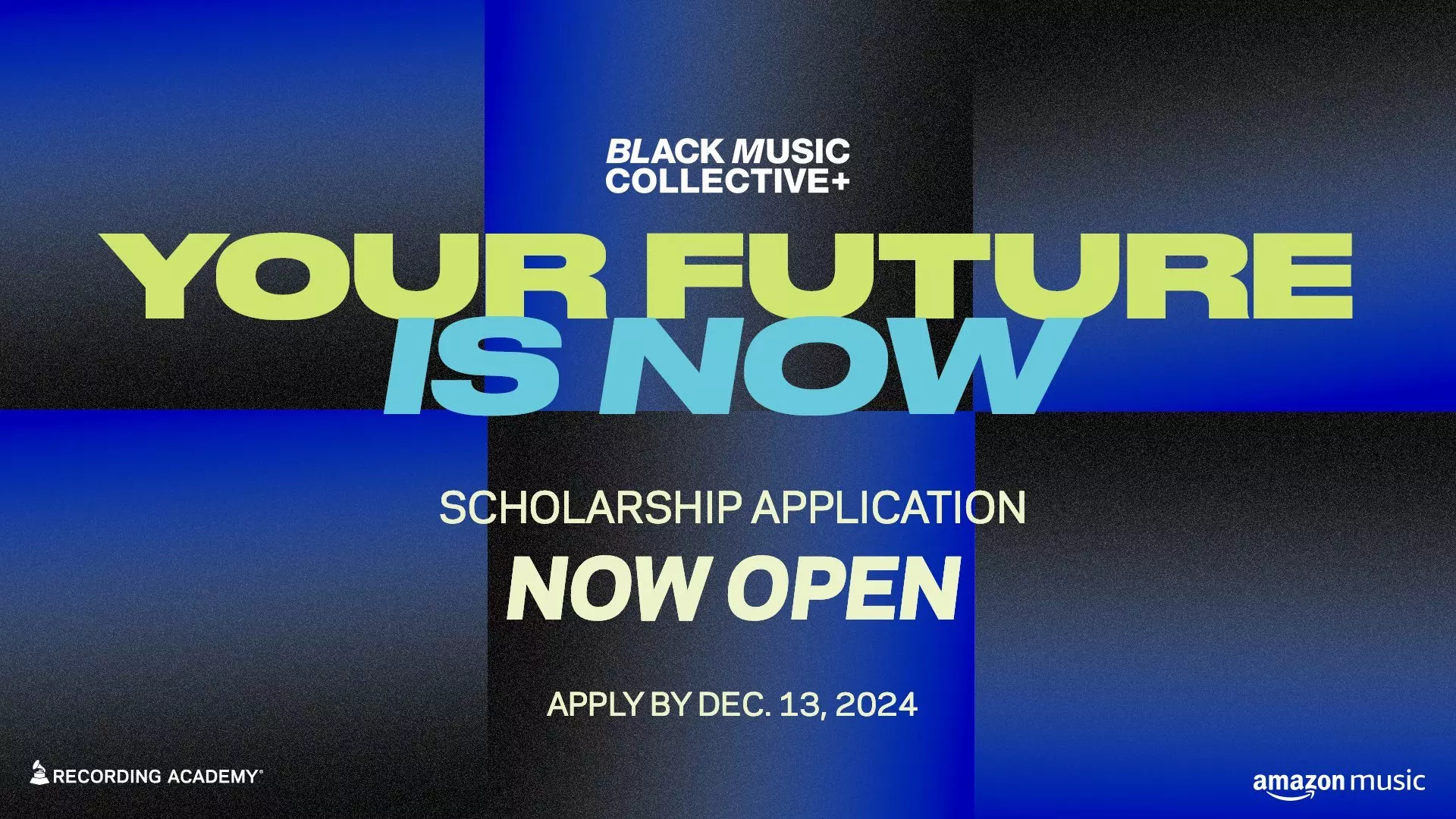
Amazon Music & Black Music Collective Announce Fourth Annual 'Your Future Is Now' Scholarship Program For HBCU Students
